Special Report
These Are the Best Foods to Reduce Your Risk of Cancer, According to Science
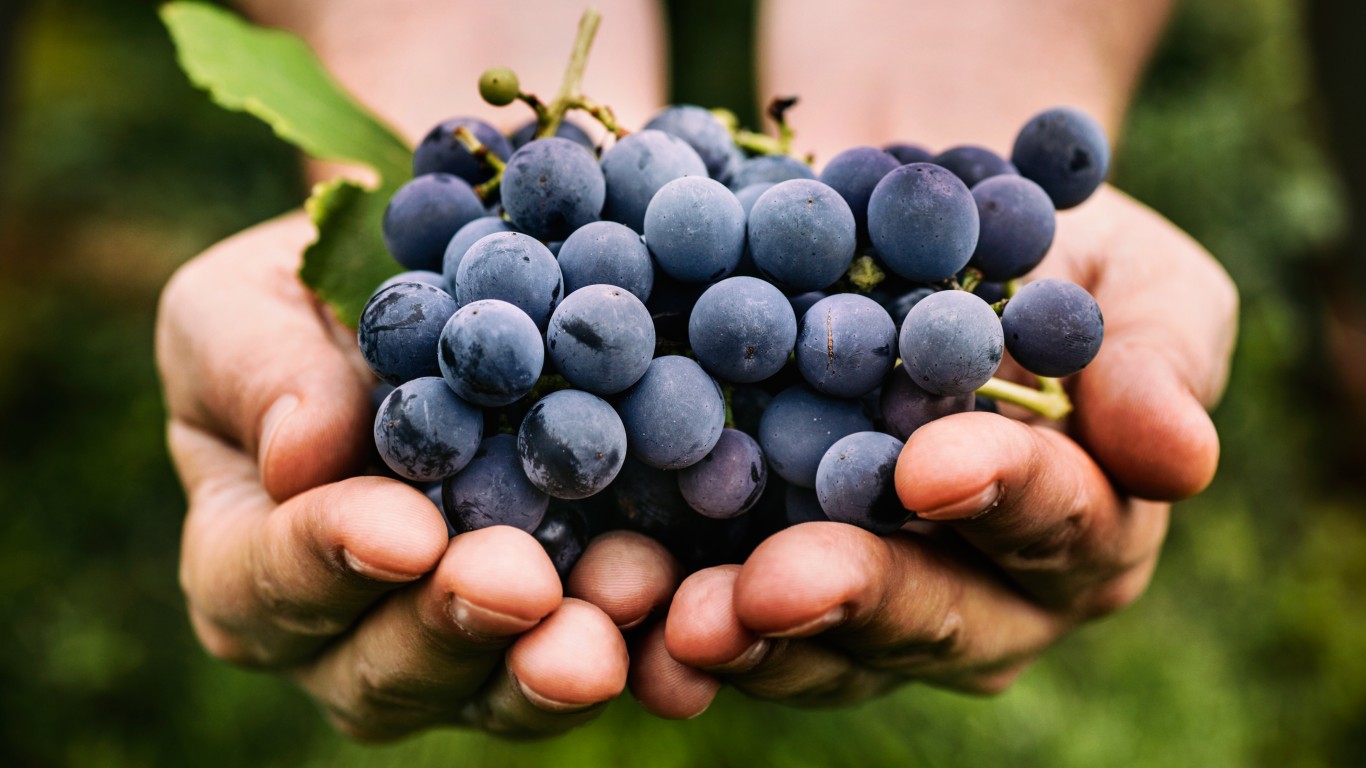
Published:

It may seem like the mainstream dietary recommendations for living a long and healthy life are constantly changing, as foods that were once considered healthy suddenly go out of fashion and once-taboo ones become nutritionally acceptable. The USDA’s dietary guidelines have evolved over the years since they were first introduced in 1894 – mainly to incorporate new scientific literature and advancements in the field of nutrition – so it’s no wonder that people trying to eat healthy are often confused.
Luckily, certain nutritional guidelines haven’t changed.. A plant-based diet that consists primarily of whole foods including fruits, vegetables, whole grains, and legumes has consistently proven to be the healthiest way to eat, and is associated with a lower risk of cancer in countless studies – not to mention a lower risk of cardiovascular disease.
In order to determine the foods most likely to reduce the risk of cancer, 24/7 Tempo reviewed numerous scientific studies and meta-analyses, as well as reports by the American Institute for Cancer Research.
The results, as expected, include a rainbow of fruits and vegetables as well as grains, nuts, seeds, and legumes. These plant foods contain necessary fiber, nutrients, and phytochemicals that all contribute to our health and fight cancer in different ways. Some are full of antioxidants that prevent cell damage that can turn cancerous, while others contain compounds that can inhibit the formation of tumors or kill existing cancer cells. (Here are some easy ways to boost your immune system.)
Click here to see the best foods to reduce your risk of cancer, according to science
Because no single food has all the nutrients we need, it’s important to eat a varied diet that includes as many of these foods as possible, and more. While choosing a healthier diet can’t guarantee cancer prevention, much less cure cancer, it can reduce your risk. (Early detection is also key, of course. These are 20 common symptoms that can mean cancer.)
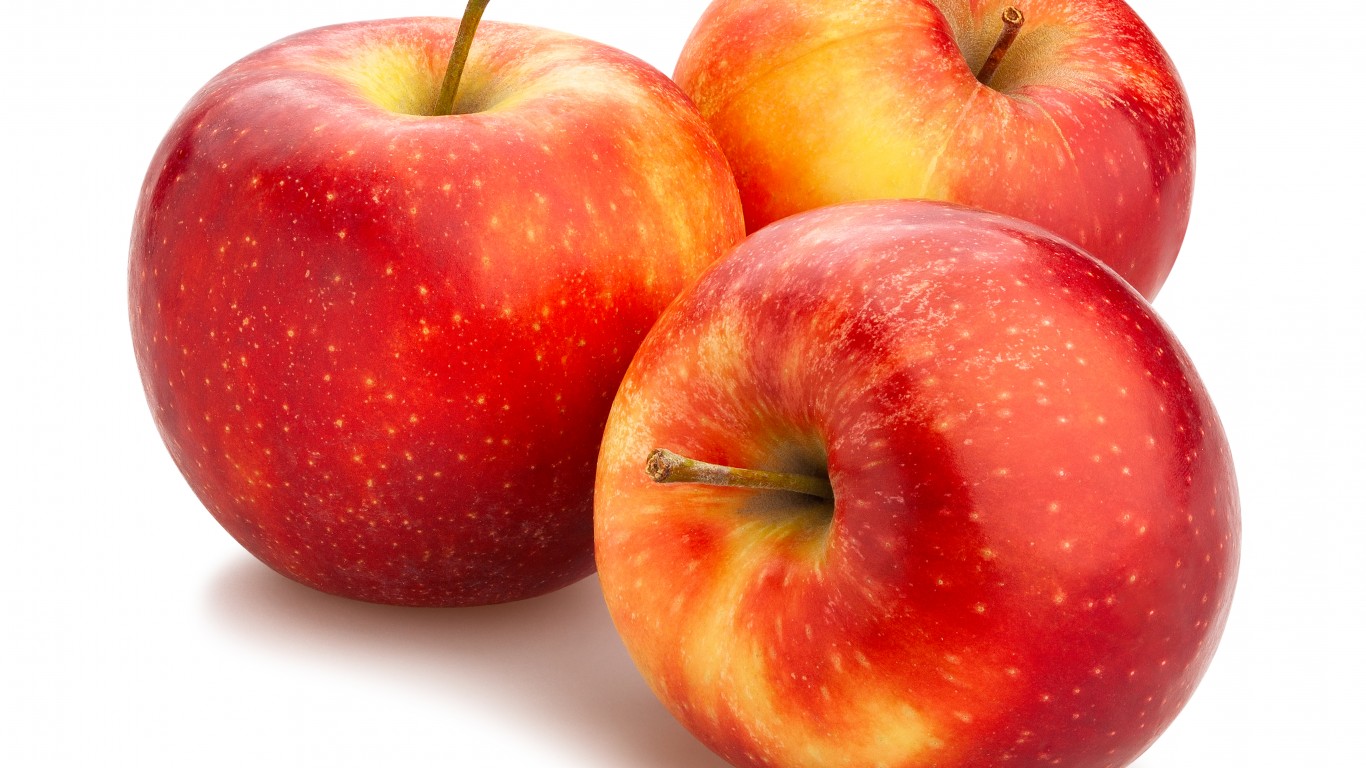
Apples
> Important ingredient(s): Quercetin
Apples – particularly their skin – contain a high concentration of the flavonoid quercetin, which has been studied extensively and is shown to inhibit the proliferation of multiple types of cancer including prostate, breast, lung, cervical, and colon. The fruit is also high in dietary fiber, which is associated with lower rates of colorectal cancer.
[in-text-ad]
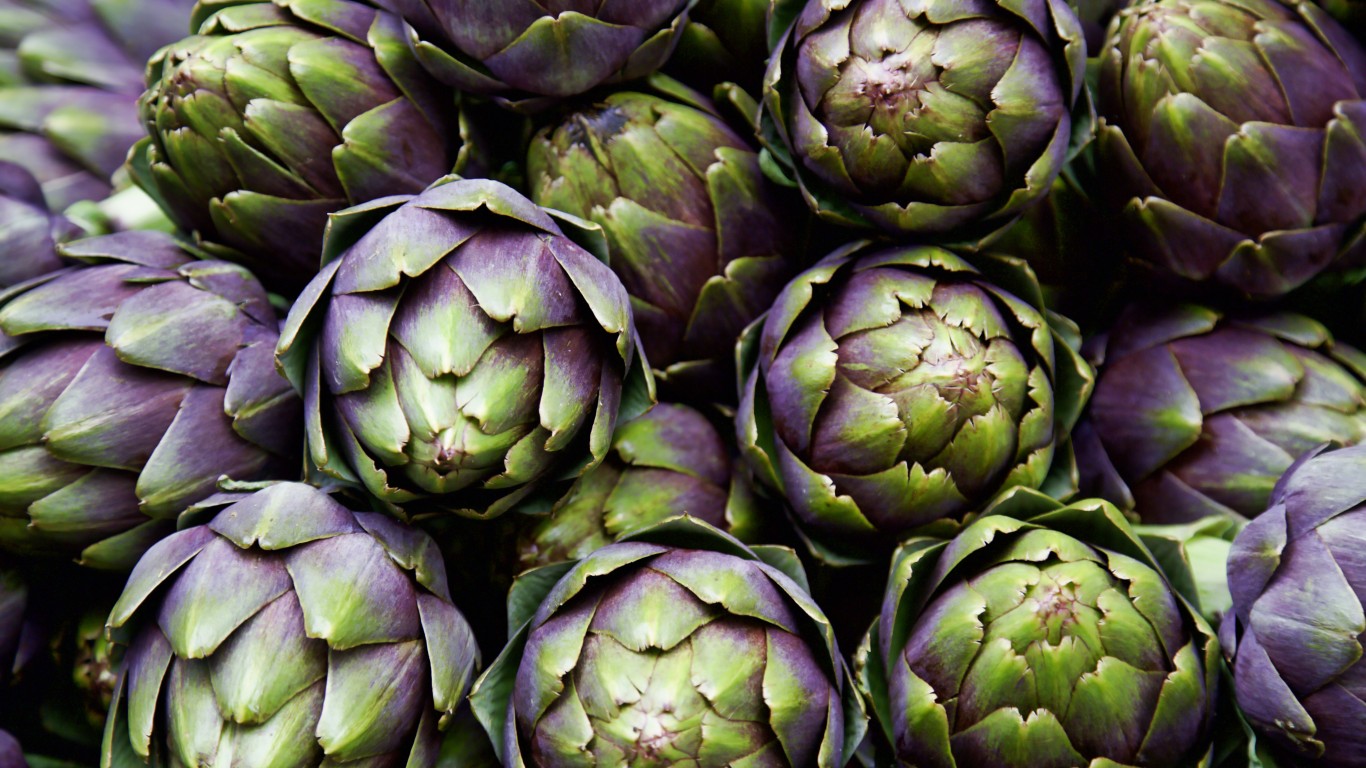
Artichokes
> Important ingredient(s): Polyphenols
Artichokes are full of polyphenols, including the flavonoid apigenin, which studies show may help prevent breast cancer. Artichokes are also one of the most fiber-rich vegetables you can eat, which means they can contribute to the prevention of certain bowel cancers.
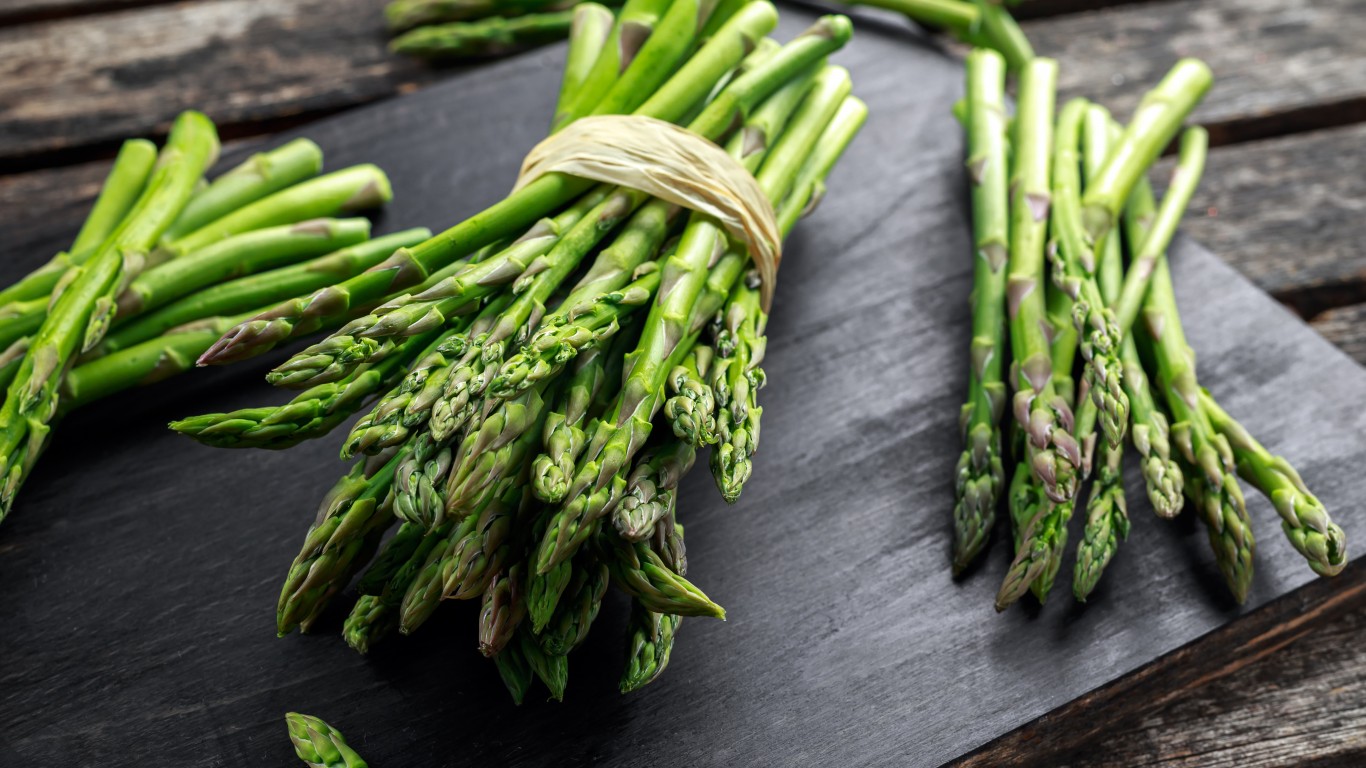
Asparagus
> Important ingredient(s): Folate
Asparagus is naturally high in folate, also known as vitamin B9. Increased dietary folate intake has been associated with lowered risks of certain types of cancer including pancreatic and breast cancer. Folate deficiency has been linked to the formation of certain esophageal cancers.
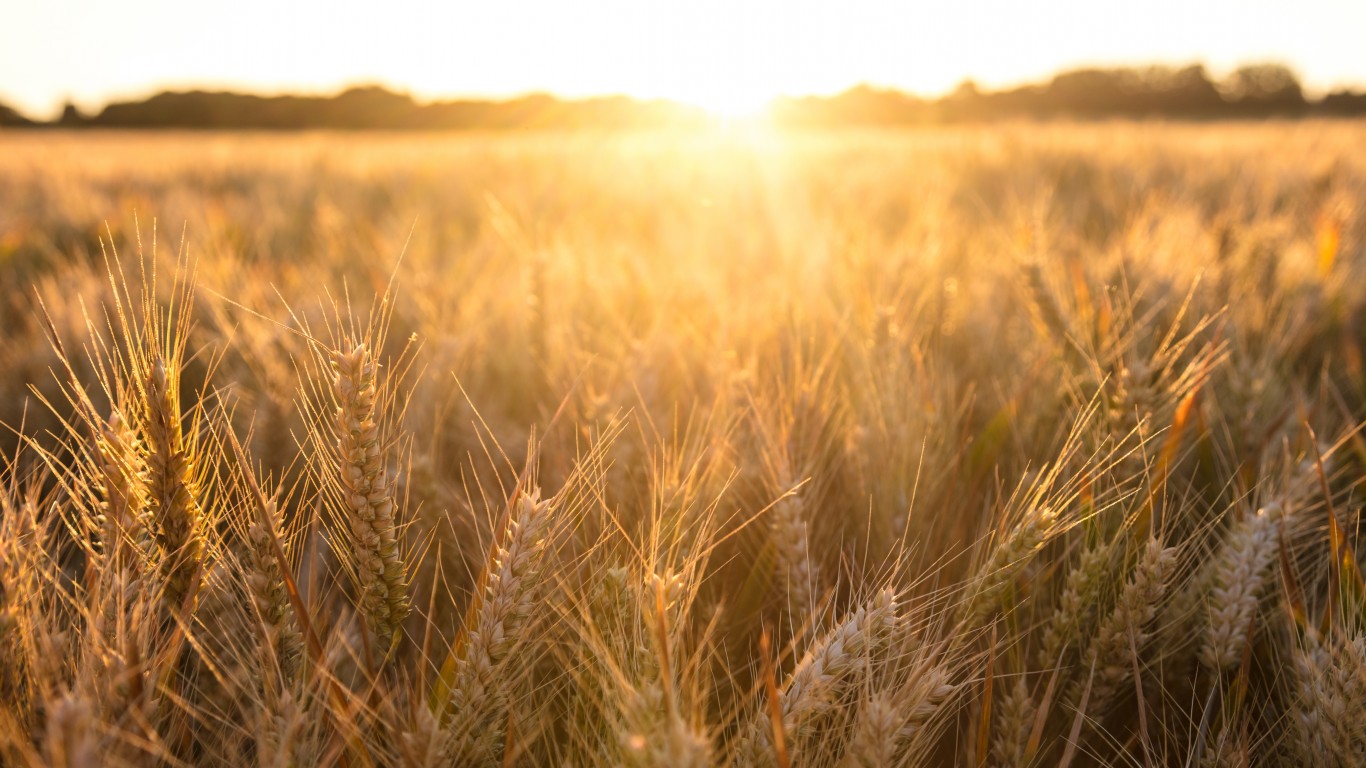
Barley
> Important ingredient(s): Beta-glucans
This fiber-rich grain is high in the polysaccharides called beta-glucans, which are a source of prebiotic fiber, shown in multiple studies to have immunomodulatory and antitumor properties. (The compounds may also decrease LDL cholesterol levels.)
[in-text-ad-2]
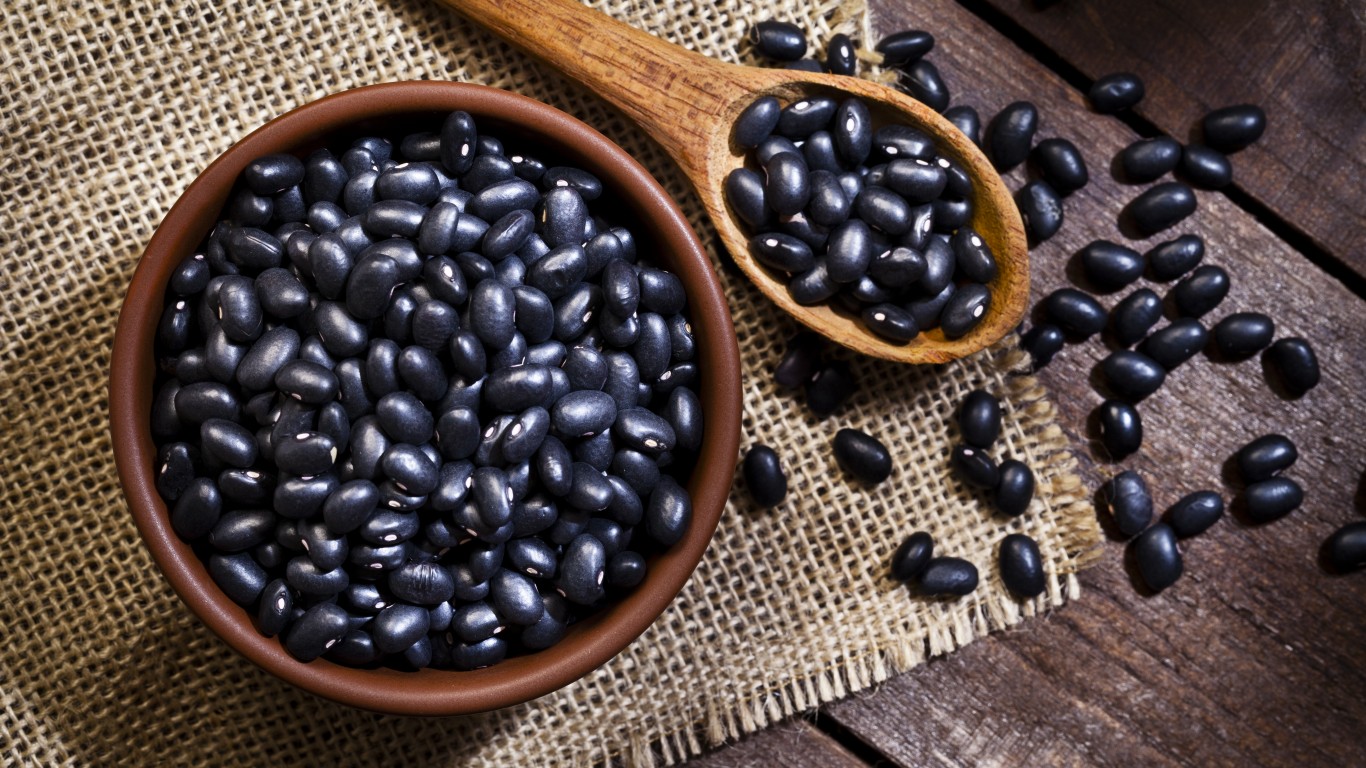
Black beans
> Important ingredient(s): Anthocyanins
Black beans contain flavonoids including anthocyanins, which are known to be antioxidant and anti-inflammatory, and may also fight cancer in numerous ways including antimutagenesis (preventing cells from mutating into cancer cells), inhibiting the proliferation of cancer cells once they are present.
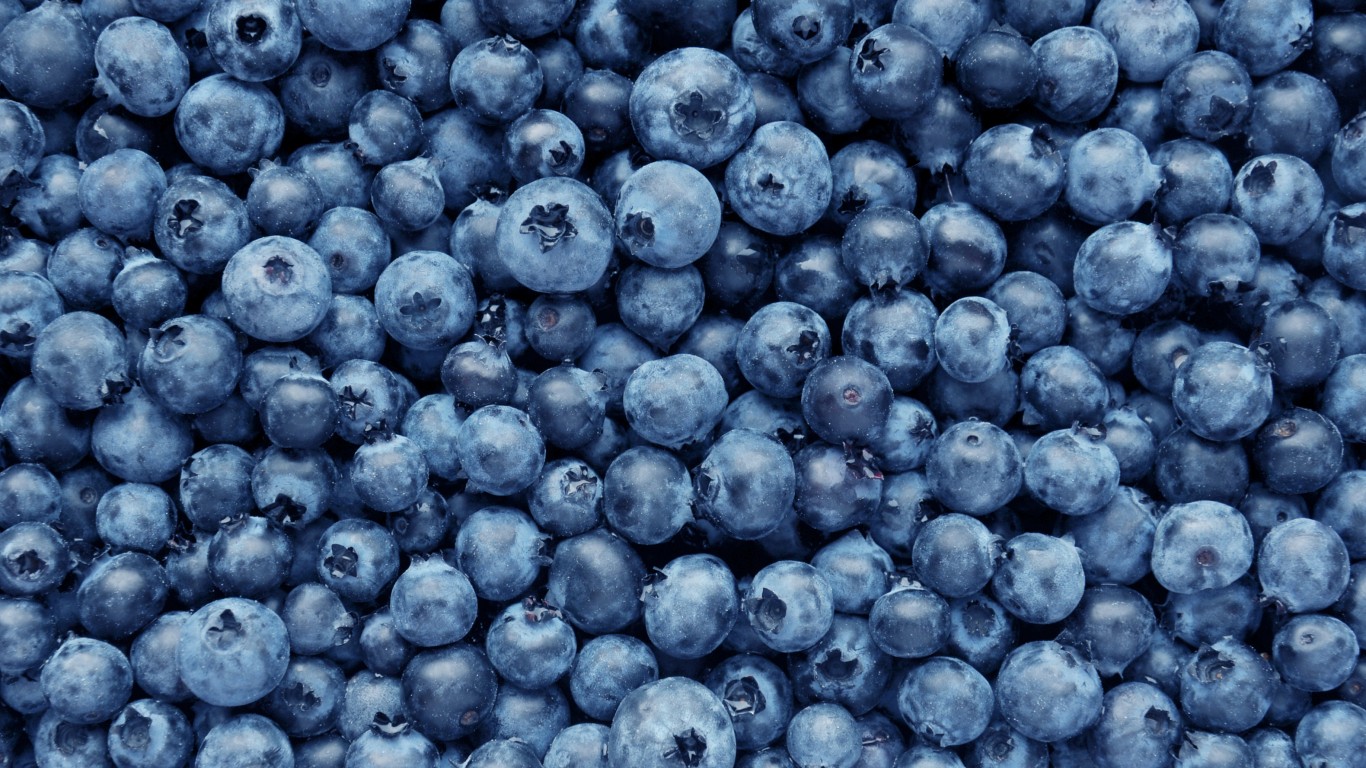
Blueberries
> Important ingredient(s): Anthocyanins
Like black beans, blueberries also contain anthocyanins, which give both foods their distinctive colors as well as strong antioxidant properties. Antioxidants work against cancer by reducing the formation of free radicals – molecules that can damage DNA and contribute to the development of cancer.
[in-text-ad]
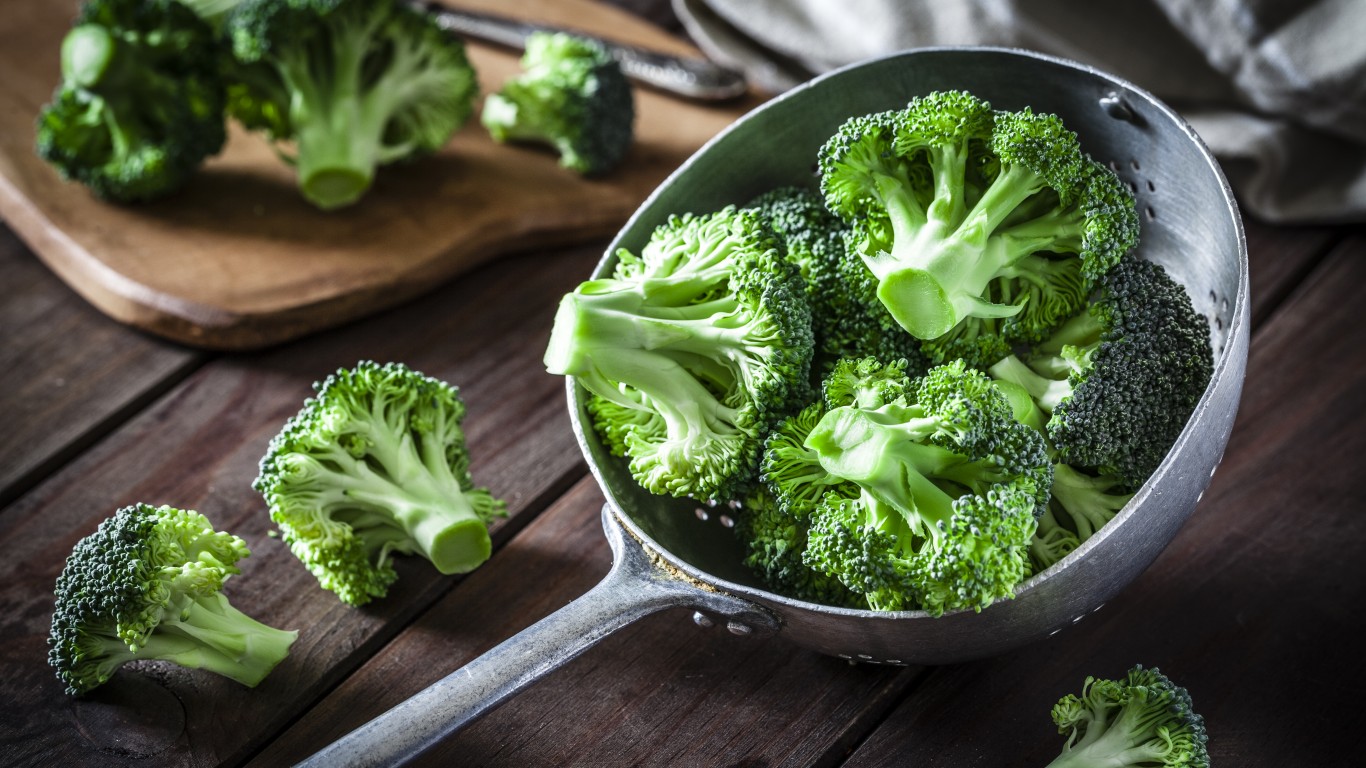
Broccoli
> Important ingredient(s): Sulforaphanes
Broccoli is a great source of sulforaphanes, powerful phytochemicals which preliminary studies suggest may stem the development of certain cancers including prostate cancer by inhibiting mutations in DNA and preventing cancerous cells from multiplying.
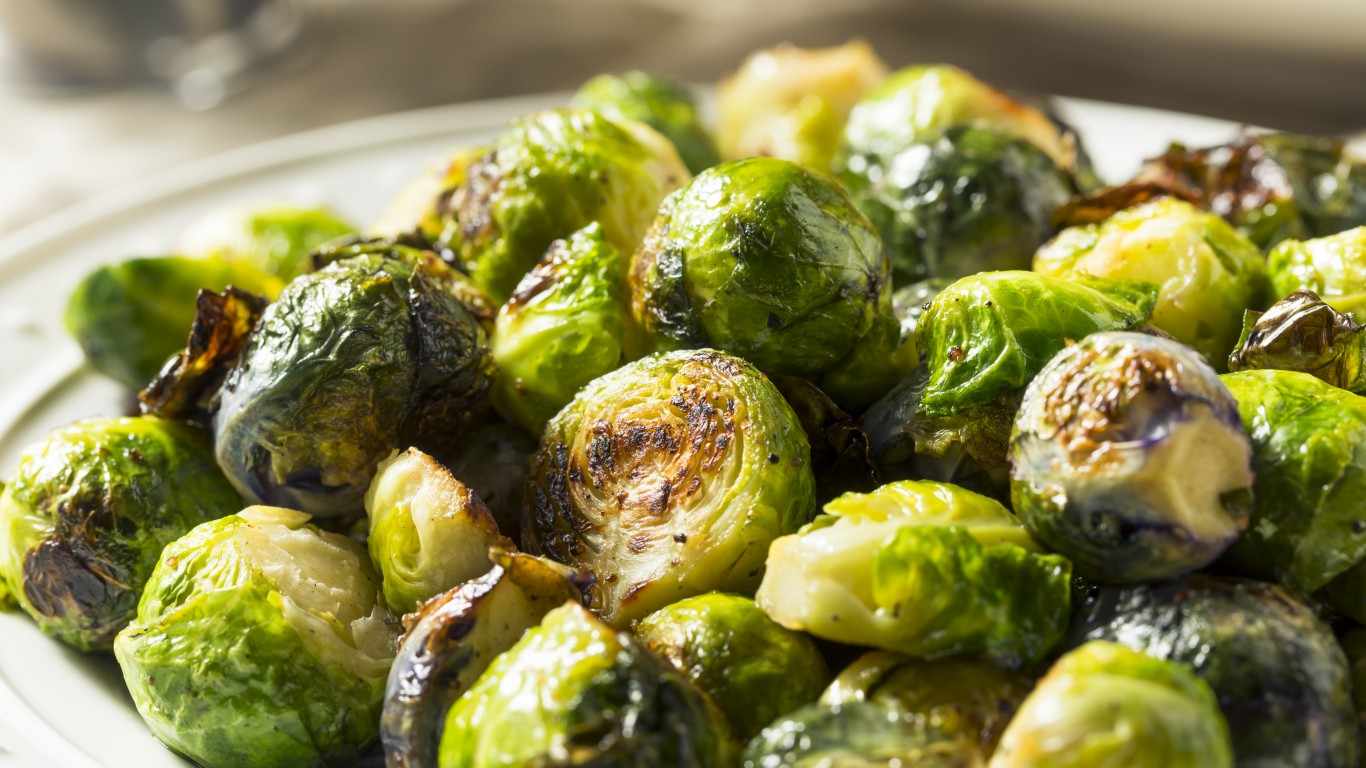
Brussels sprouts
> Important ingredient(s): Carotenoids
In addition to being high in fiber, which can decrease the risk of colorectal cancers, brussels sprouts contain carotenoids, which some studies suggest may decrease the risk of certain lung and breast cancers.
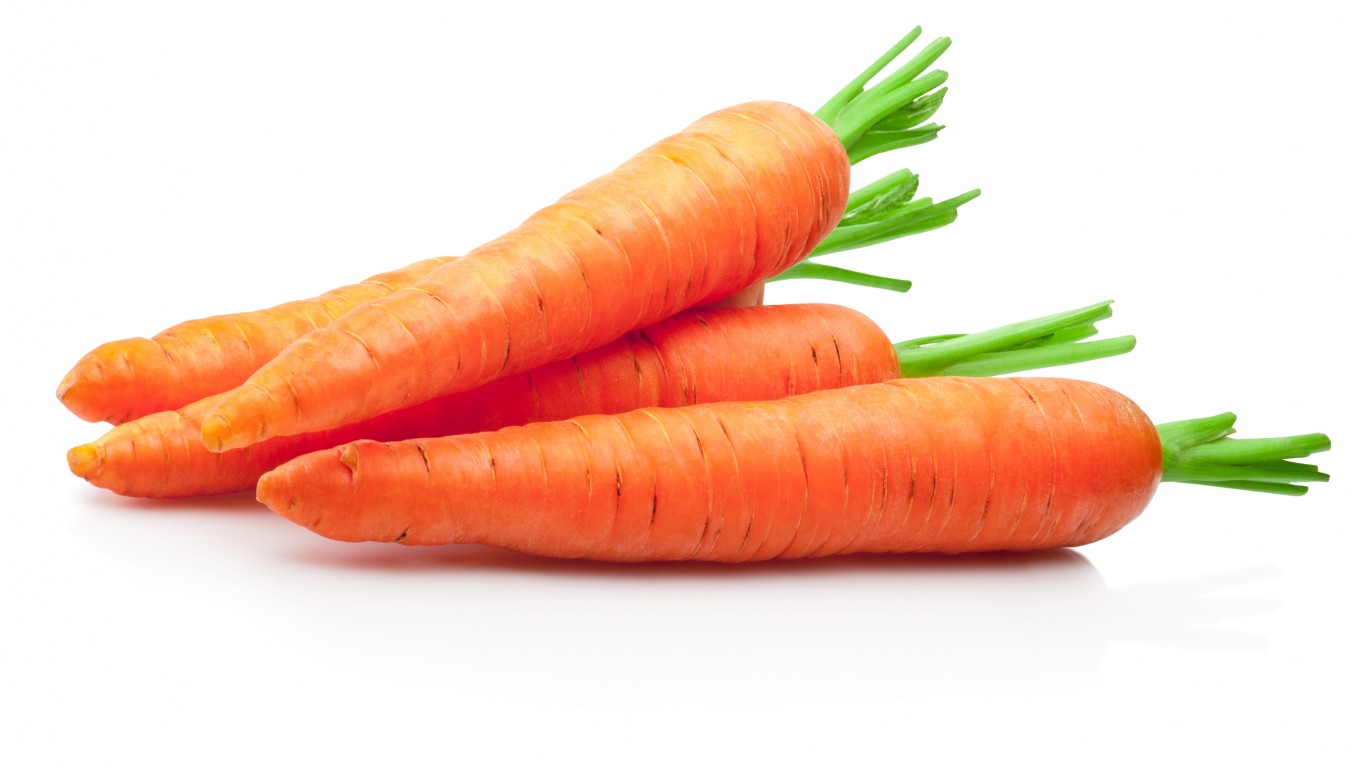
Carrots
> Important ingredient(s): Beta-carotene
Carrots are famous for being packed with beta-carotene, an antioxidant that may protect cell membranes from oxidative damage and reduce the formation of cancer cells. Some studies suggest that the antioxidants in carrots may also fight HPV, the virus that causes cervical cancer.
[in-text-ad-2]
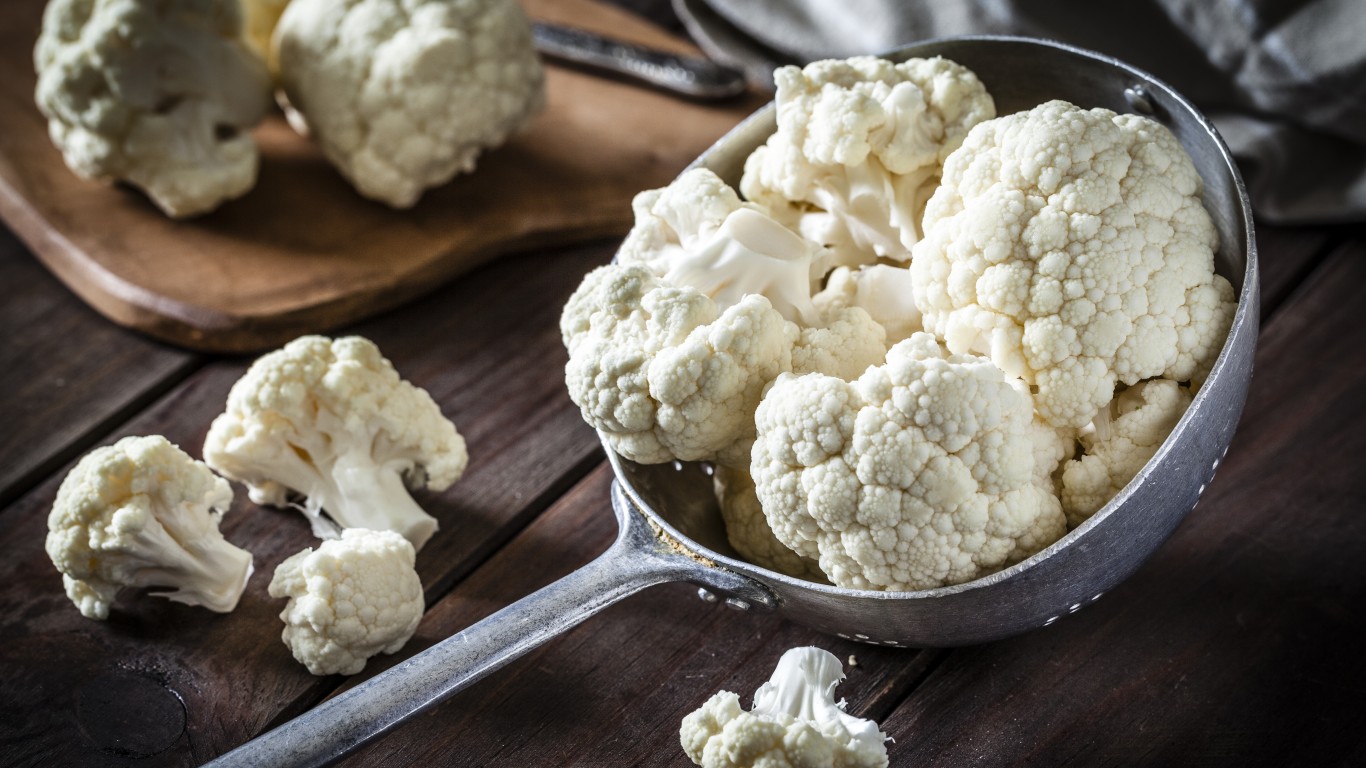
Cauliflower
> Important ingredient(s): Glucosinolates and vitamin C
Cauliflower, like other cruciferous vegetables, is packed full of nutrients and compounds that reduce the risk of cancer. Multiple studies show that people who eat a diet high in cruciferous vegetables are less likely to develop certain types of cancer.
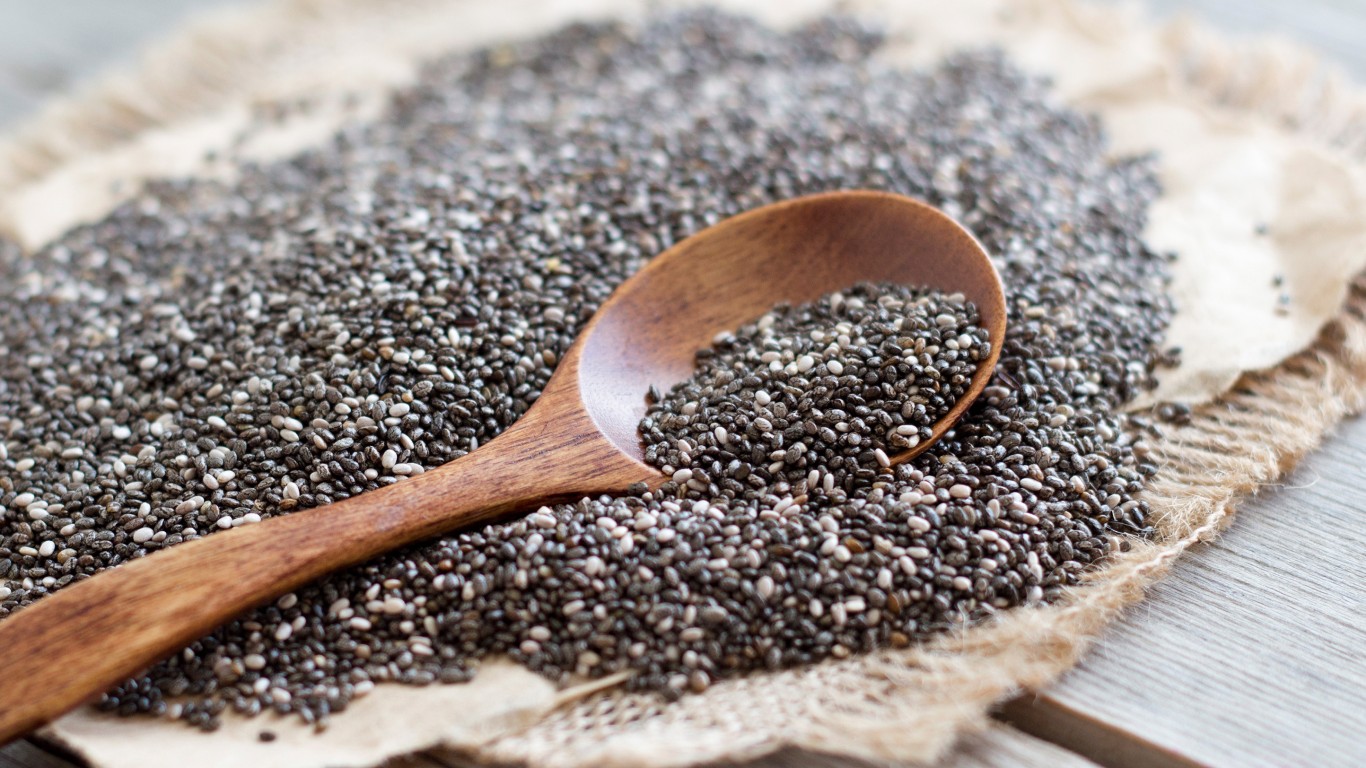
Chia seeds
> Important ingredient(s): Fiber and omega-3 fatty acids
The fiber and omega-3 fatty acids in chia seeds contribute to a healthier gut microbiome, which can play an important role in the prevention of colon cancer. Omega-3s also have anti-inflammatory properties in the digestive tract.
[in-text-ad]
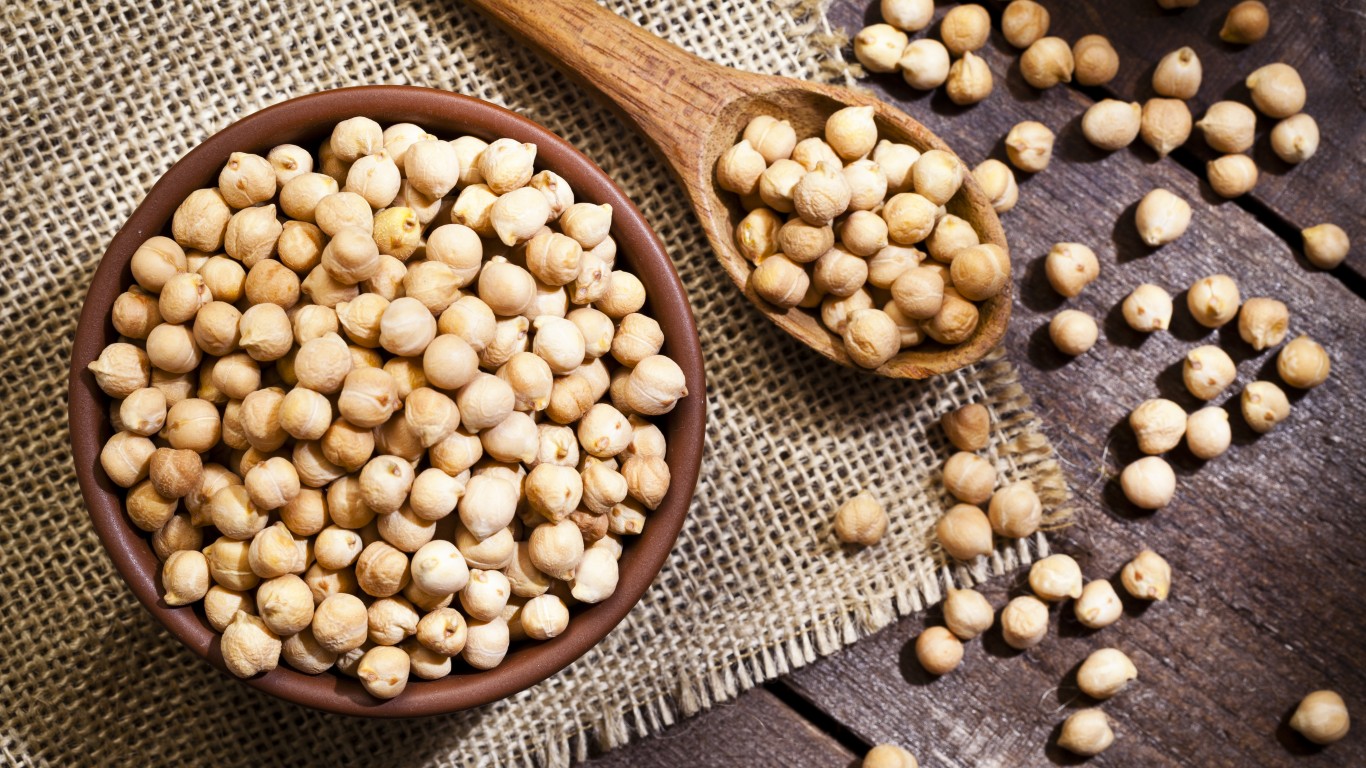
Chickpeas
> Important ingredient(s): Fiber
A review of 14 different studies found that regular consumption of garbanzo beans is linked to a lower risk of colorectal cancer. The fiber in chickpeas is transformed into short chain fatty acids in the gut, and these are thought to have anti-inflammatory and cancer-fighting effects.
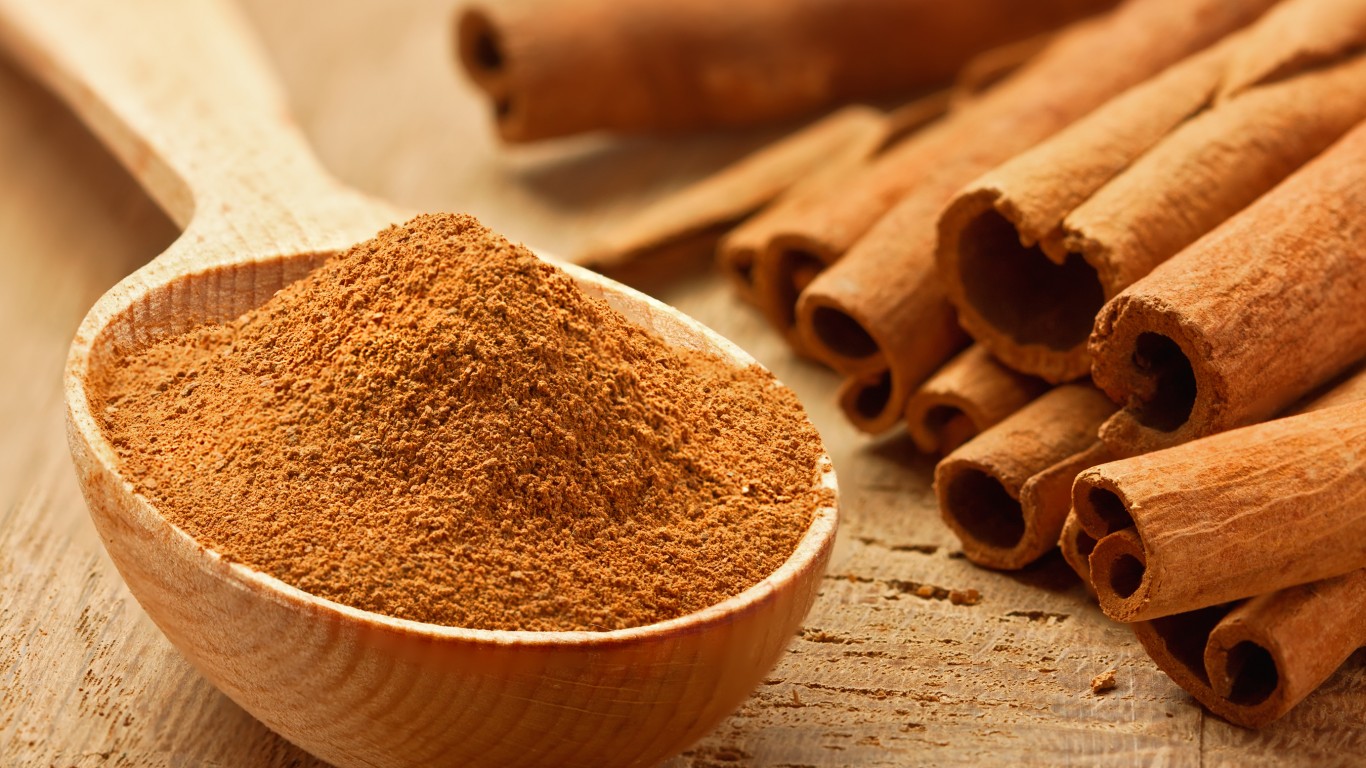
Cinnamon
> Important ingredient(s): Cinnamaldehyde
Apoptosis – the normal death process of an organism’s cells – is often disrupted in cancerous cells, leaving them free to survive and mutate for longer. Cinnamaldehyde, the main constituent of cinnamon bark, has been shown in multiple studies to encourage death in tumor cells that have lost their apoptotic function.
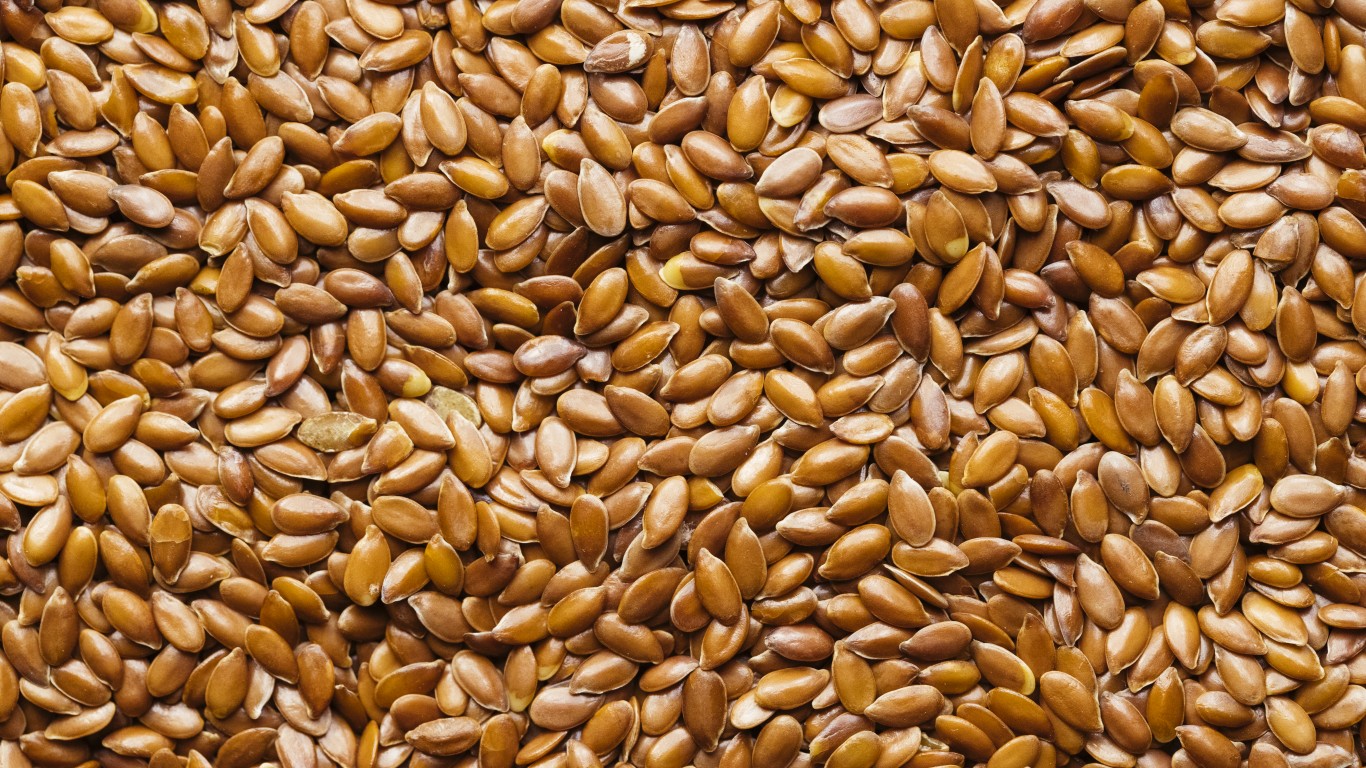
Flaxseeds
> Important ingredient(s): Fiber and omega-3 fatty acids
Flaxseeds are full of fiber, as well as alpha-linoleic acid and omega-3 fatty acids, which have been correlated to lower risk of breast cancer. Some clinical trials suggest that flaxseeds may also slow the growth of tumors in people who already have breast cancer.
[in-text-ad-2]
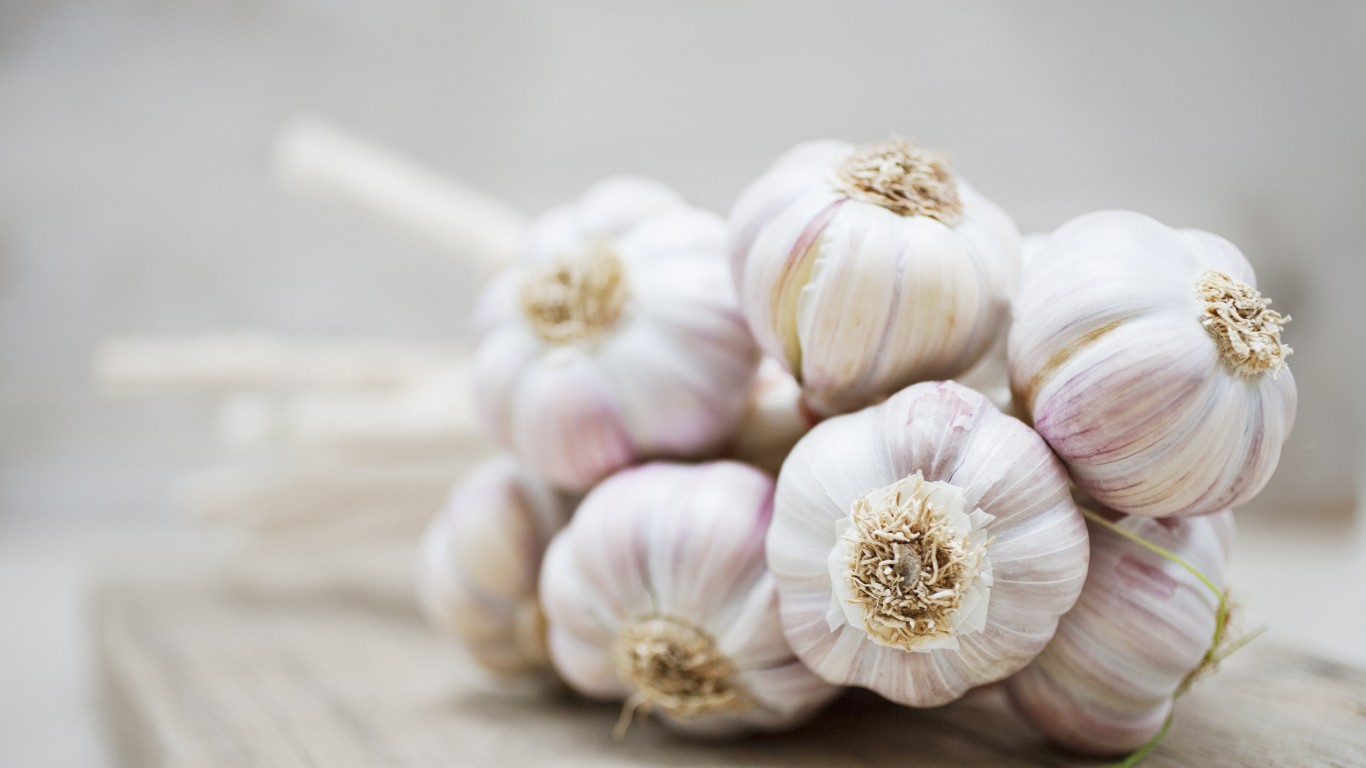
Garlic
> Important ingredient(s): Sulfur compounds
The pungent sulfur compounds in garlic may prevent cancer cells from forming, speed DNA repair, and kill existing cancer cells. Research suggests that garlic may reduce the risk of developing esophageal, stomach, pancreatic, and colon cancers.
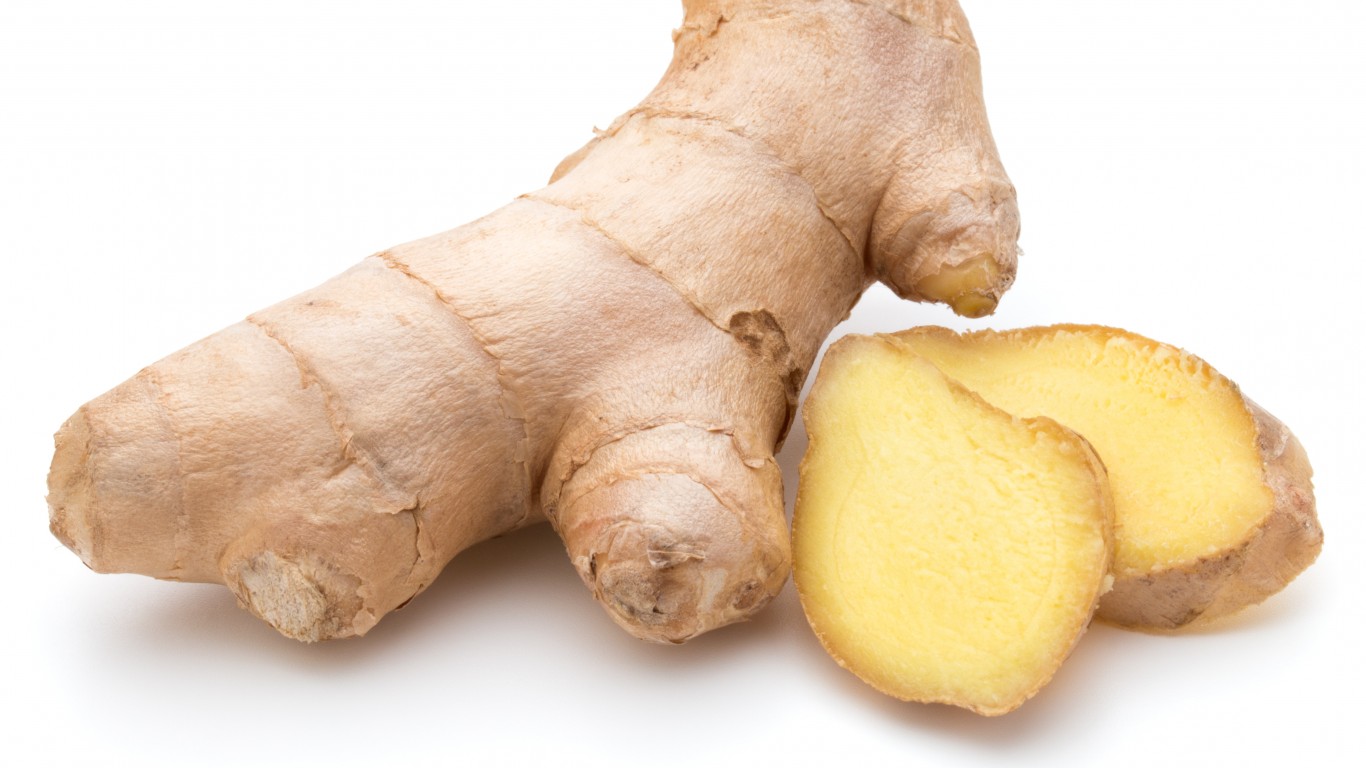
Ginger
> Important ingredient(s): Curcumin
Preliminary studies show that ginger may have anti-inflammatory effects in the colon. This could help reduce the risk of colon cancer, as inflammation in the colon can lead to the formation of precancerous lesions or cancerous polyps.
[in-text-ad]
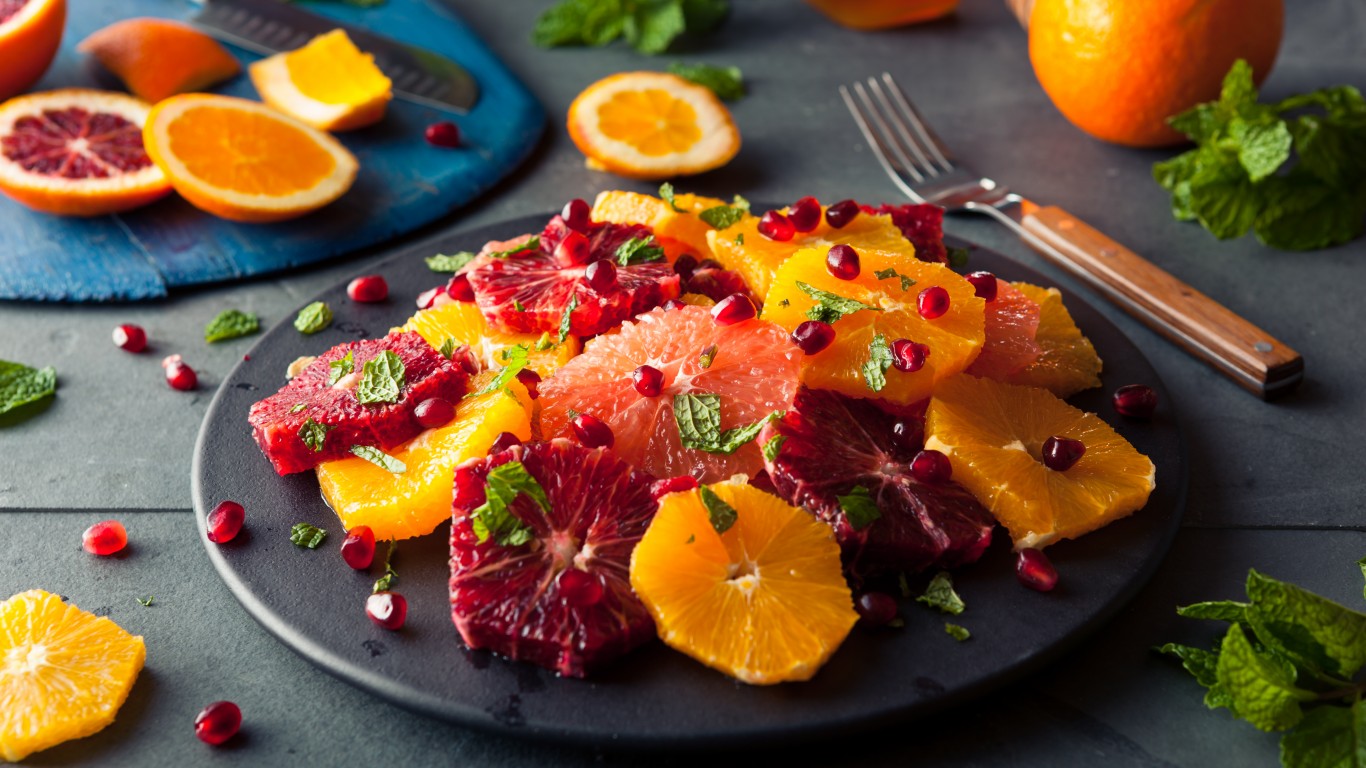
Grapefruit
> Important ingredient(s): Vitamin C and flavonoids
Grapefruit is high in vitamin C, a powerful antioxidant with the ability to prevent free radicals from damaging cells. It also contains flavonoids that may inhibit the formation of cancer by modulating certain cellular activities including apoptosis and metastasis.
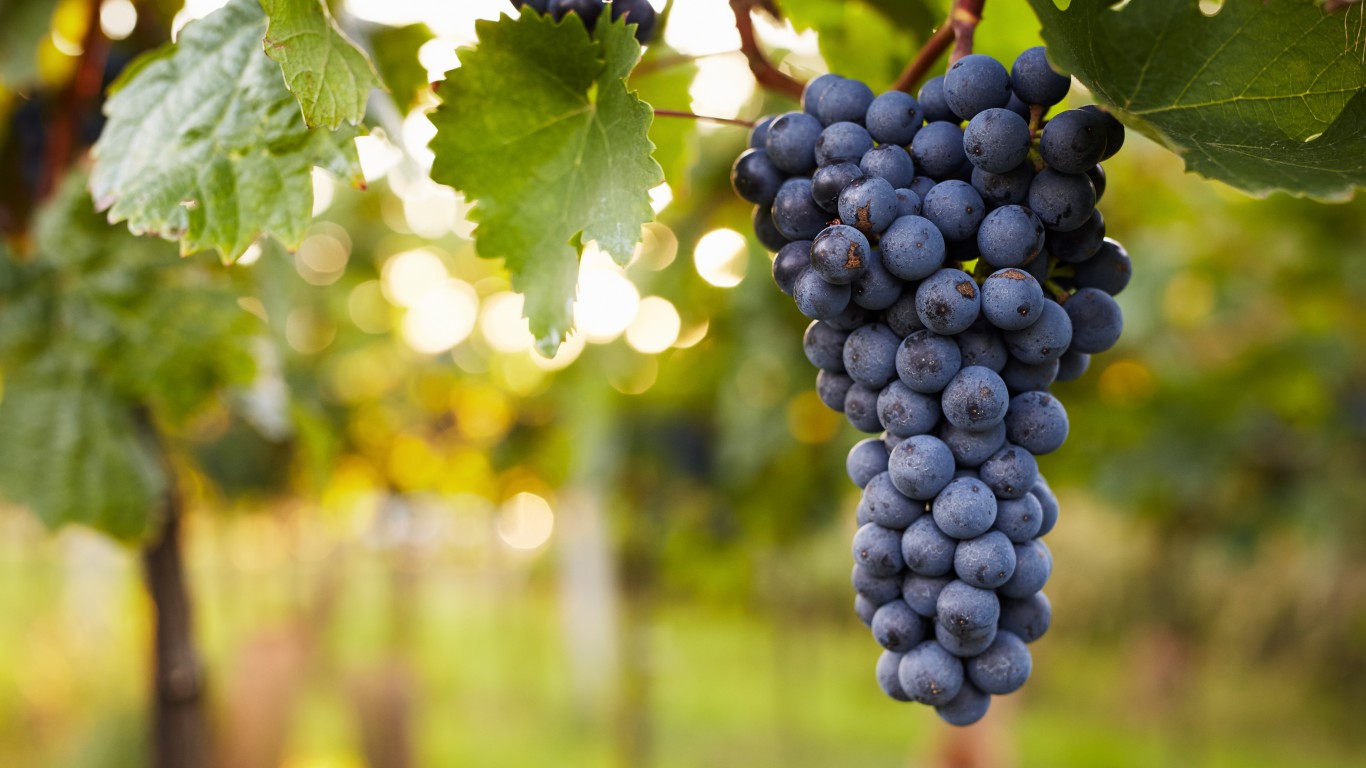
Grapes
> Important ingredient(s): Resveratrol
Grapes are a great source of the antioxidant resveratrol, which some studies suggest may help prevent certain cancers including breast, liver, stomach, and lymphatic cancers. Grapes containing seeds are best, as the seeds contain even more cancer-fighting antioxidants.
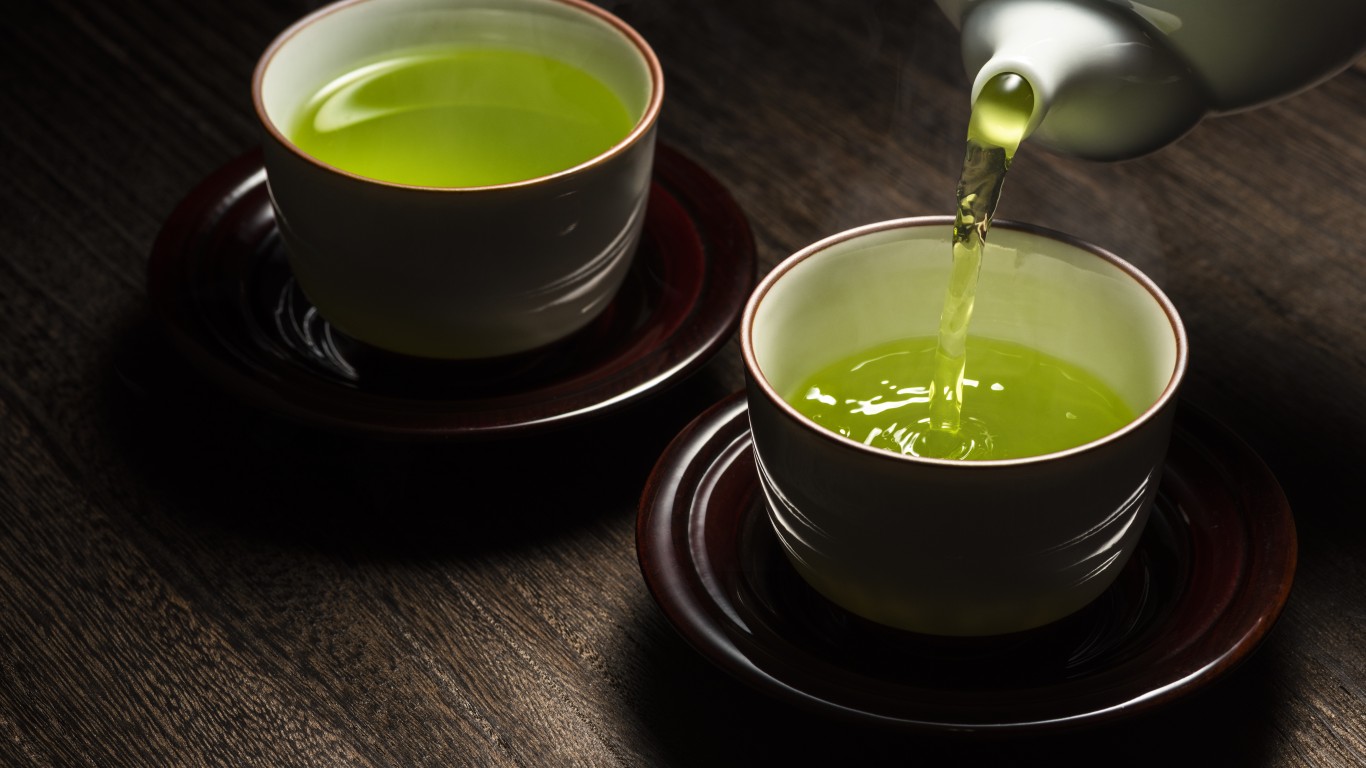
Green tea
> Important ingredient(s): Polyphenols
Green tea is packed with cancer-fighting polyphenols like epigallocatechin gallate, which reduces oxidative damage to cells and may also prevent the growth of blood vessels that feed cancerous cells.
[in-text-ad-2]
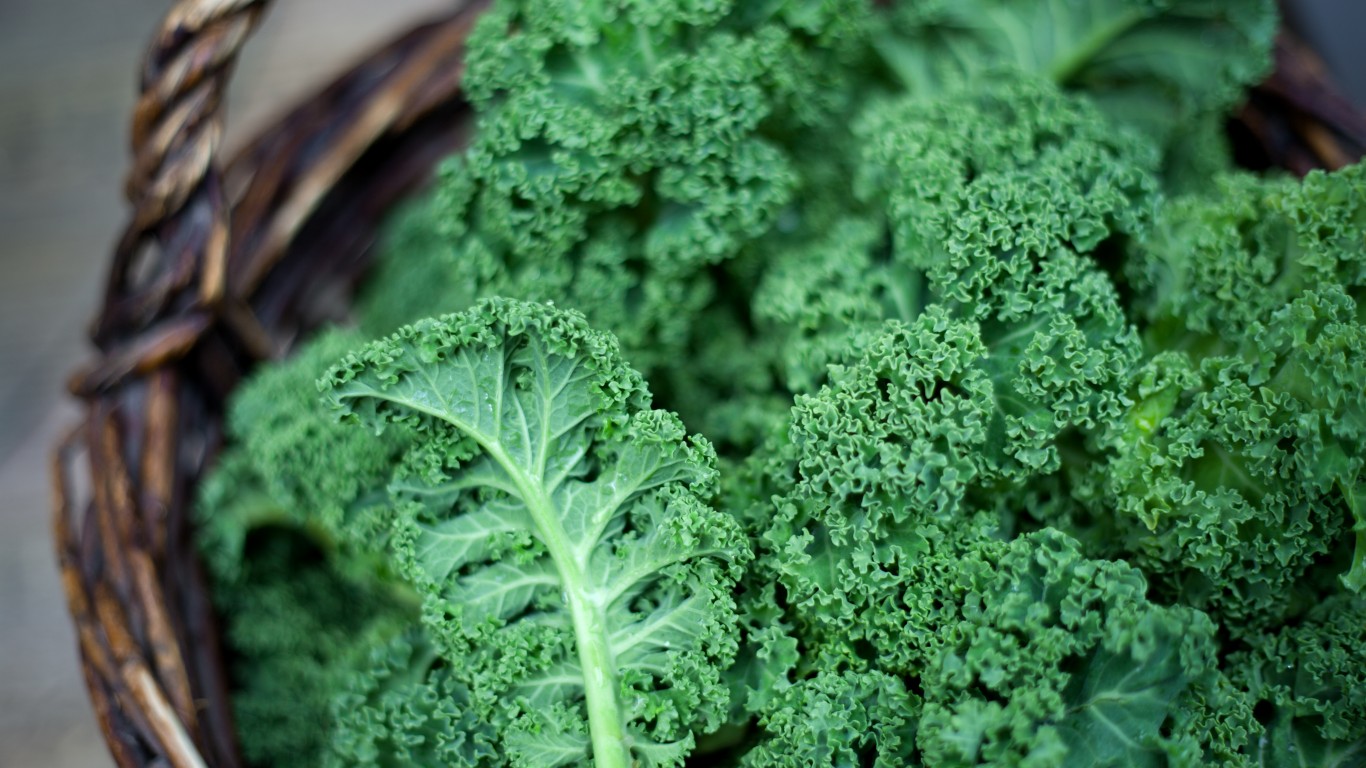
Kale
> Important ingredient(s): Vitamins A and C
Kale is a cruciferous vegetable that is high in vitamins A and C, both of which have strong antioxidant properties. Carotenoids in leafy greens like kale can also boost the body’s antioxidant defenses, helping to prevent cell damage and inhibit the formation of carcinogens.
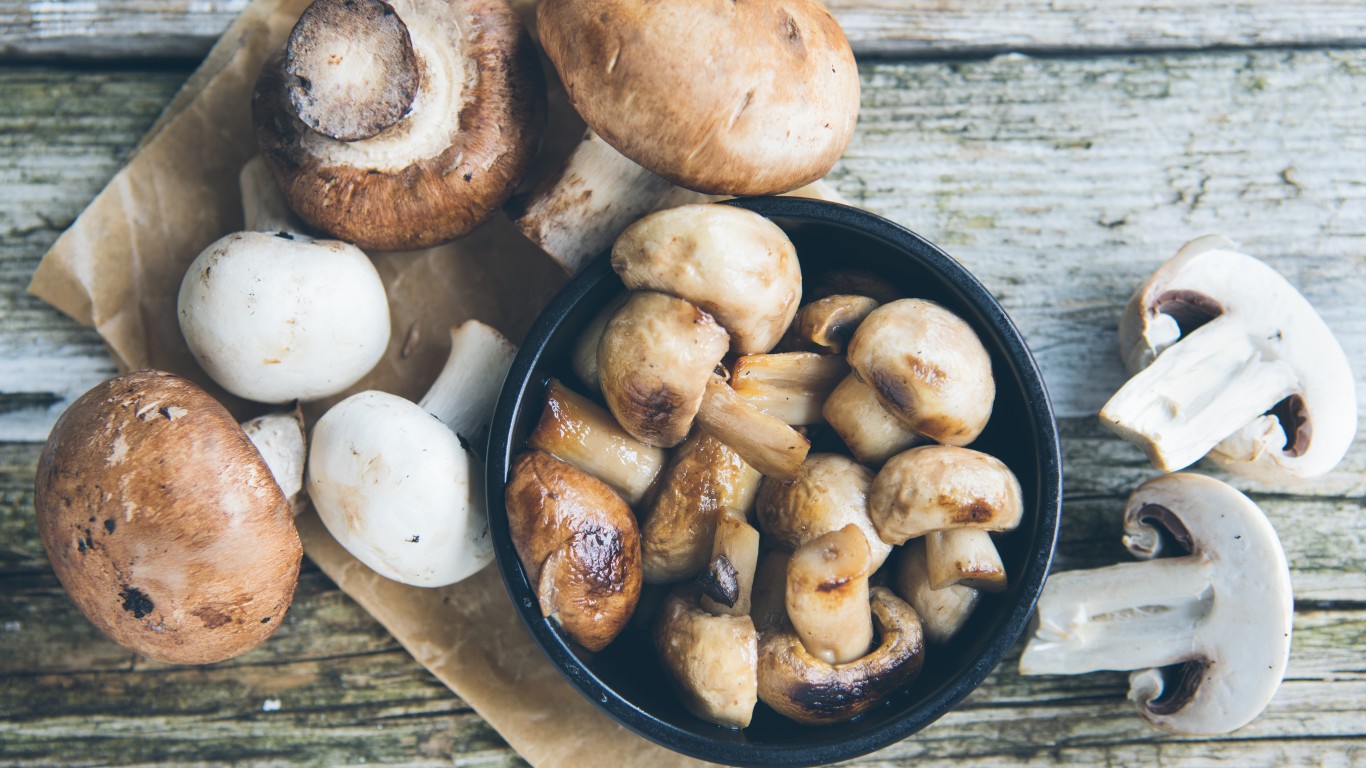
Mushrooms
> Important ingredient(s): Ergothioneine
A systematic review of over a dozen cancer studies found that people who eat mushrooms regularly have a lower risk of cancer. The antioxidant ergothioneine – which is particularly high in shiitake, maitake, and oyster mushrooms – is thought to play a significant role in their cancer-fighting abilities.
[in-text-ad]
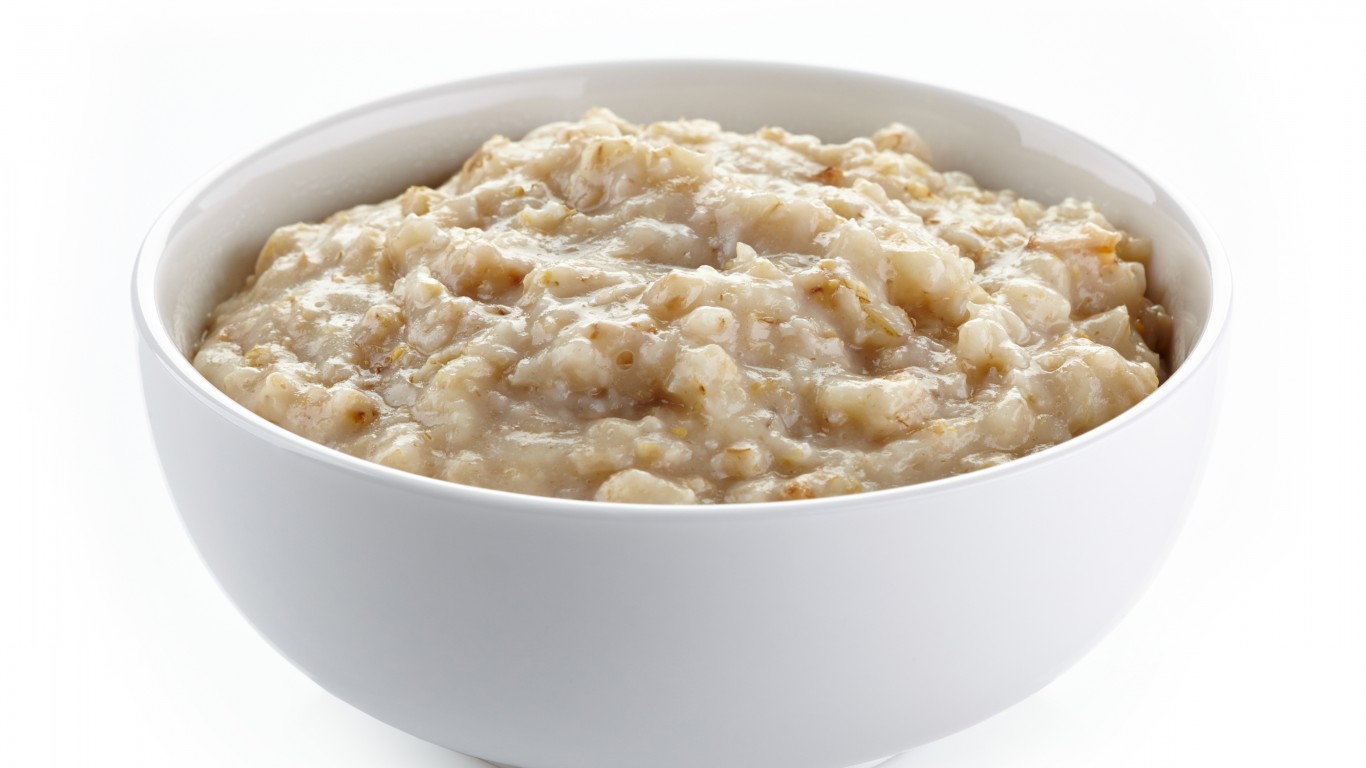
Oatmeal
> Important ingredient(s): Fiber
High in fiber, antioxidants, and phytoestrogens, whole grains like oats contain multiple cancer-fighting compounds. Fiber is indicated in preventing colorectal cancer, while phytoestrogens can inhibit the formation of breast cancer.
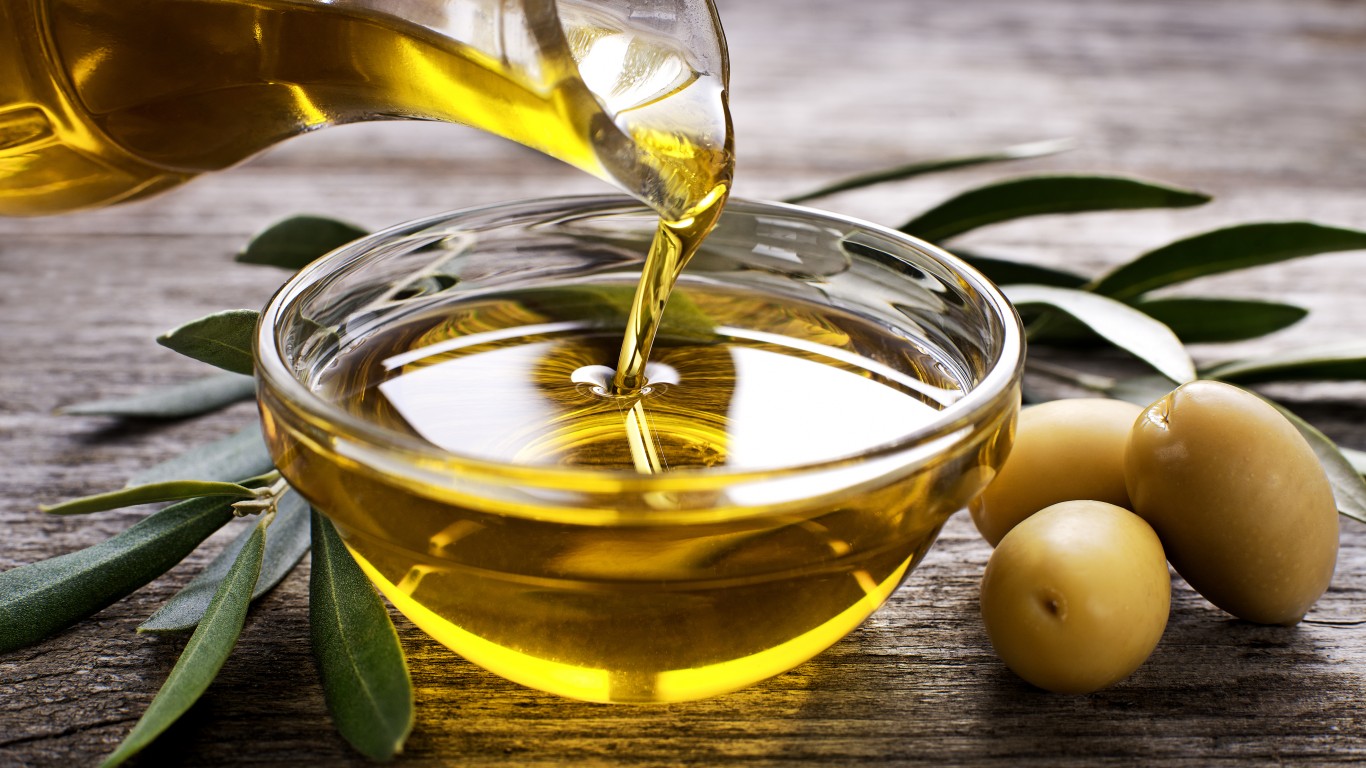
Olive oil
> Important ingredient(s): Monounsaturated fats and phenols
A meta-analysis of 19 different studies showed that people who consume higher amounts of olive oil have lower occurrences of gastrointestinal and breast cancer. Researchers think it may be the monounsaturated fats and phenols that protect against cell mutation.
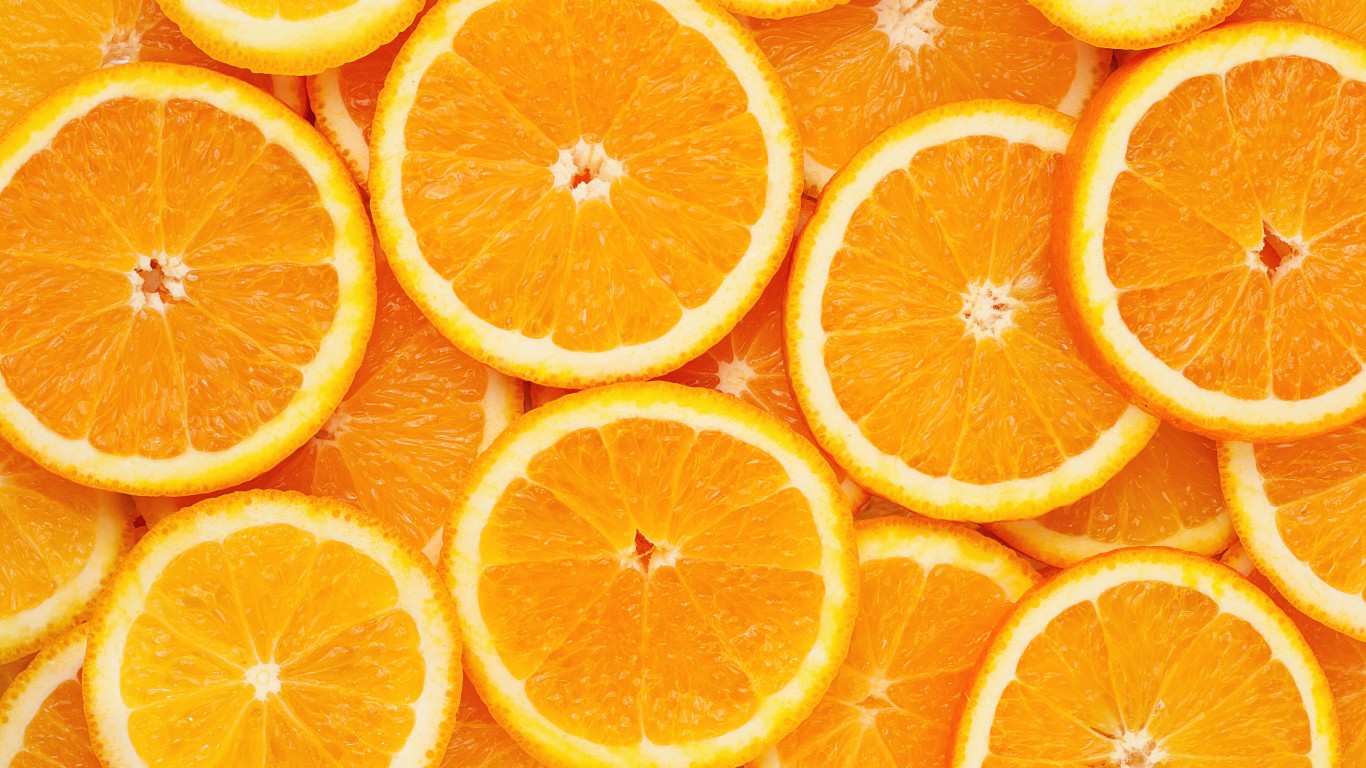
Oranges
> Important ingredient(s): Vitamin C and flavonoids
Some evidence suggests that fruits containing vitamin C are helpful in the prevention of lung and colon cancer, and that citrus fruits in particular may help decrease the risk of certain stomach cancers. Orange peels are particularly high in flavonoids and phenols that have displayed anti-cancer activity.
[in-text-ad-2]
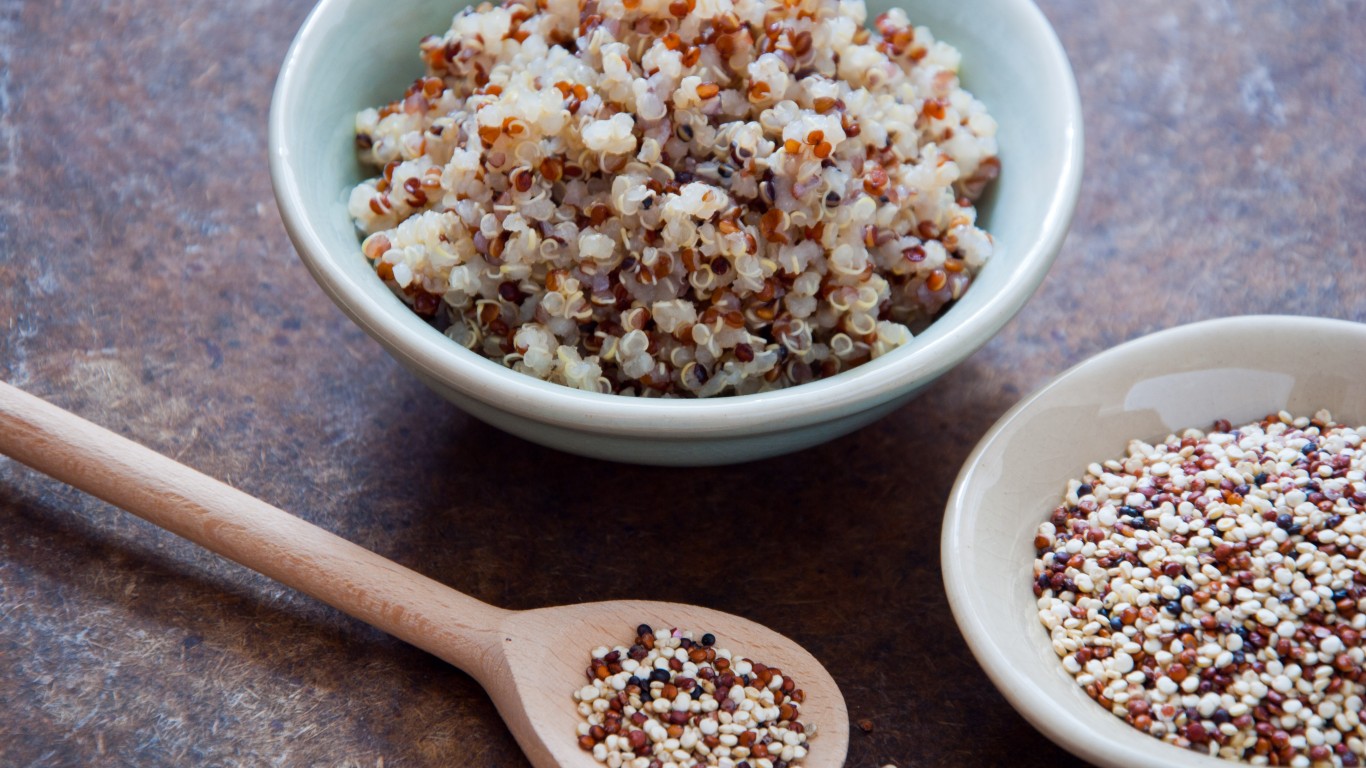
Quinoa
> Important ingredient(s): Fiber
There is significant evidence that eating high-fiber whole grains including quinoa can decrease the risk of developing colorectal cancer. Eating quinoa can also regulate insulin levels, which prevents inflammation and could lower the risk of cancer.
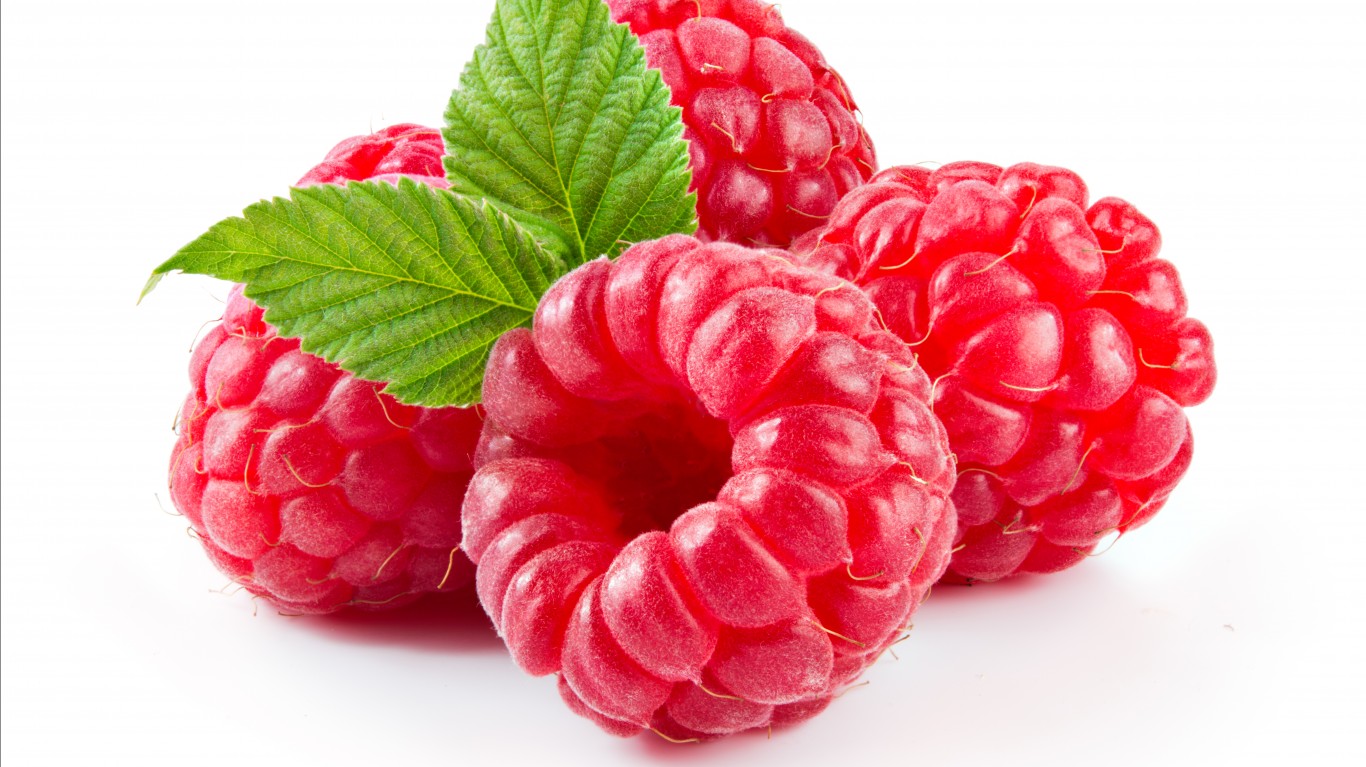
Raspberries
> Important ingredient(s): Vitamin C and ellagic acid
Raspberries are high in the antioxidant vitamin C as well as ellagic acid, which has been shown to contribute to the destruction of carcinogens and help slow the growth of cancerous tumors. Ellagic acid may be effective against cancers of the breast, lung, skin, esophagus, and bladder.
[in-text-ad]
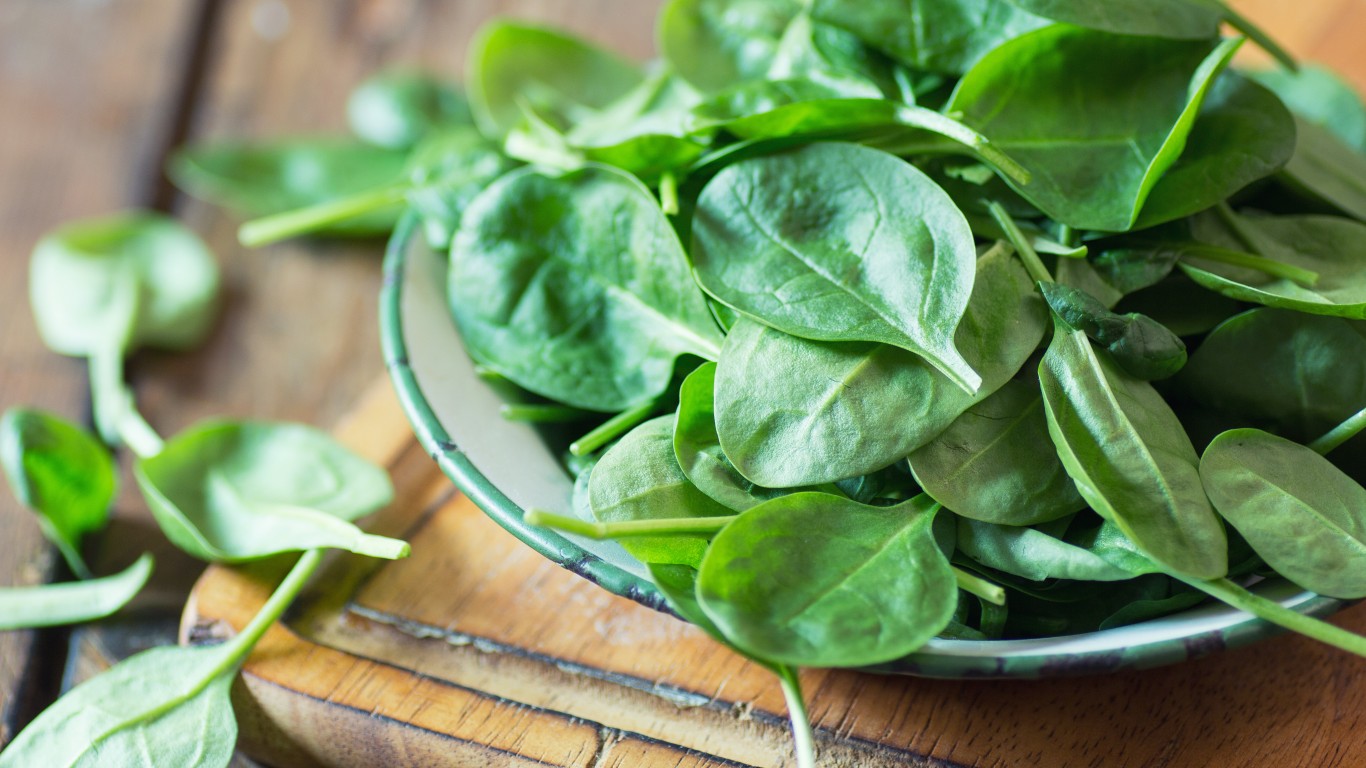
Spinach
> Important ingredient(s): Carotenoids
Spinach is high in antioxidant carotenoids including lutein and zeaxanthin that could help protect against cancer of the esophagus, stomach, and mouth. One study of nearly 490,000 people found that subjects who ate more spinach were less likely to develop esophageal cancer.
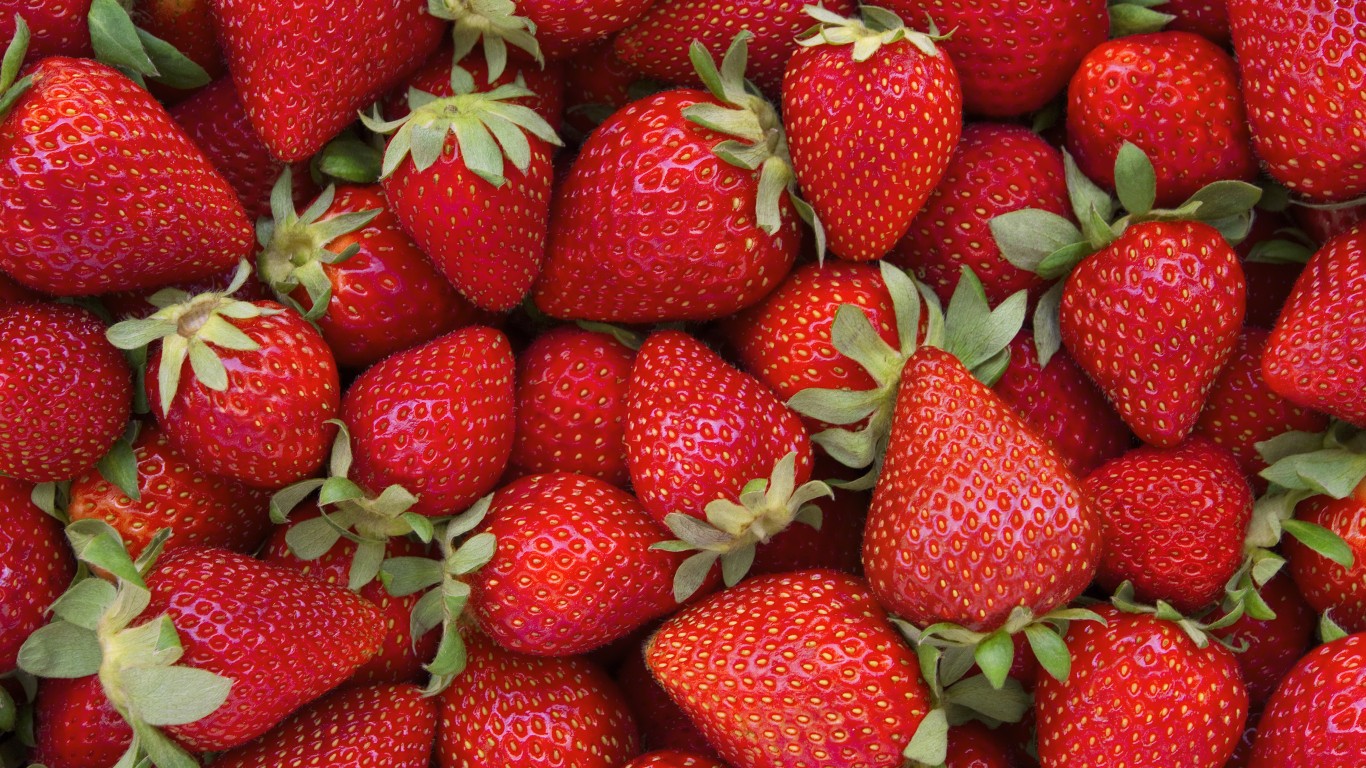
Strawberries
> Important ingredient(s): Vitamin C and ellagic acid
A recent study of strawberry extract showed that it slowed the growth of colon cancer cells. Like raspberries, strawberries are high in both vitamin C and ellagic acid, which can help prevent cancers of the skin, lung, breast, esophagus, and bladder.
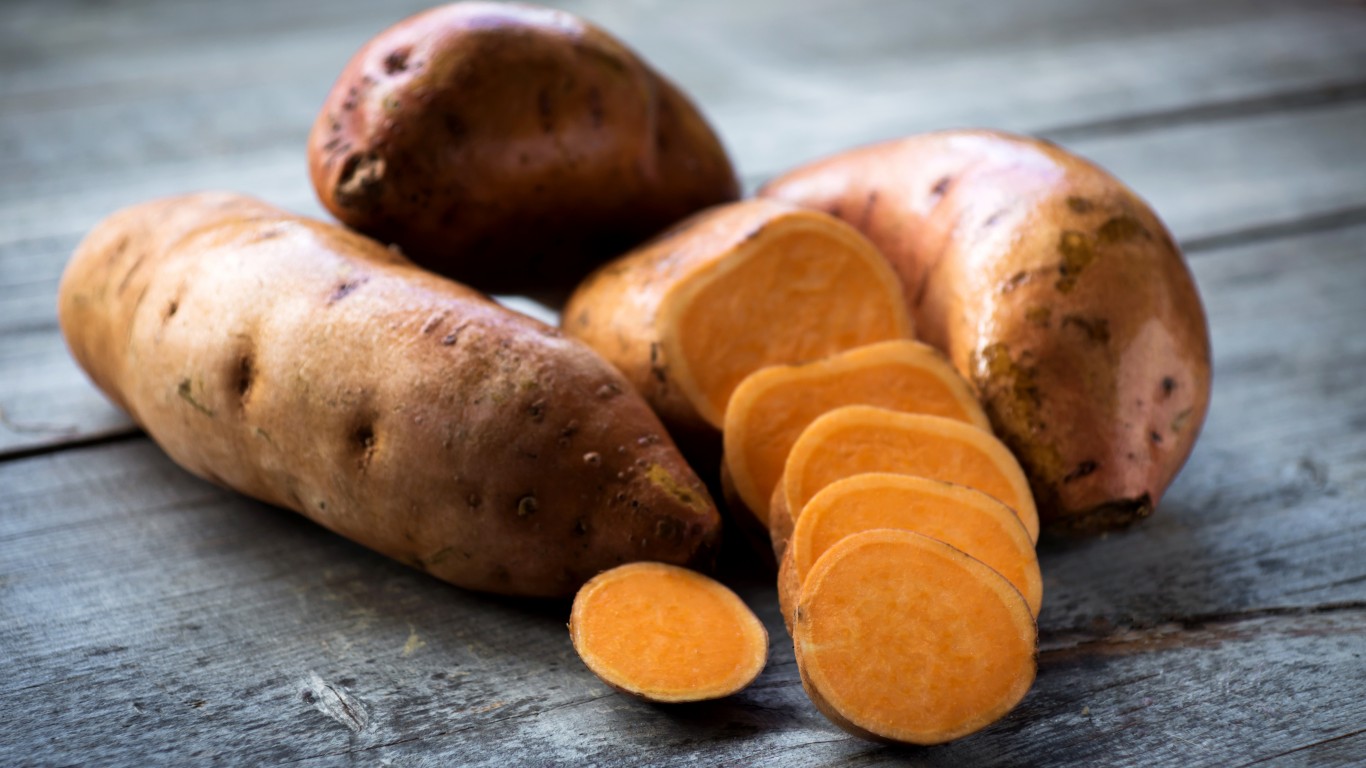
Sweet potatoes
> Important ingredient(s): Beta-carotene
Sweet potatoes are loaded with beta-carotene, which increasing evidence suggests are helpful in reducing the risk of breast cancer. A 20-year study found that women with high levels of beta-carotene in their blood were 28% less likely to develop breast cancer.
[in-text-ad-2]
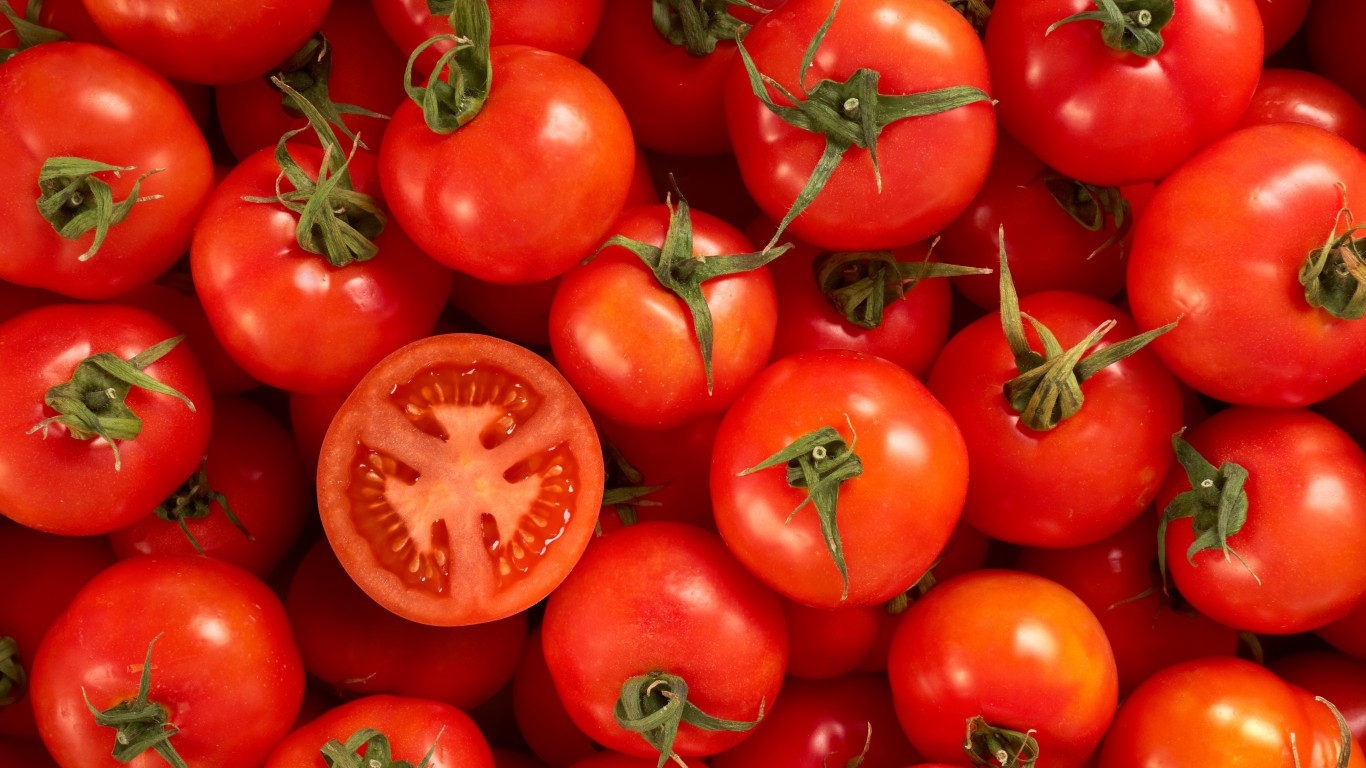
Tomatoes
> Important ingredient(s): Lycopene
Tomatoes – especially cooked or canned tomatoes, including juice and sauce – are high in the carotenoid lycopene, which multiple lab studies have shown is capable of inhibiting the growth of cancerous cells and tumors. Lycopene is specifically indicated in the reduction of prostate cancer cells.
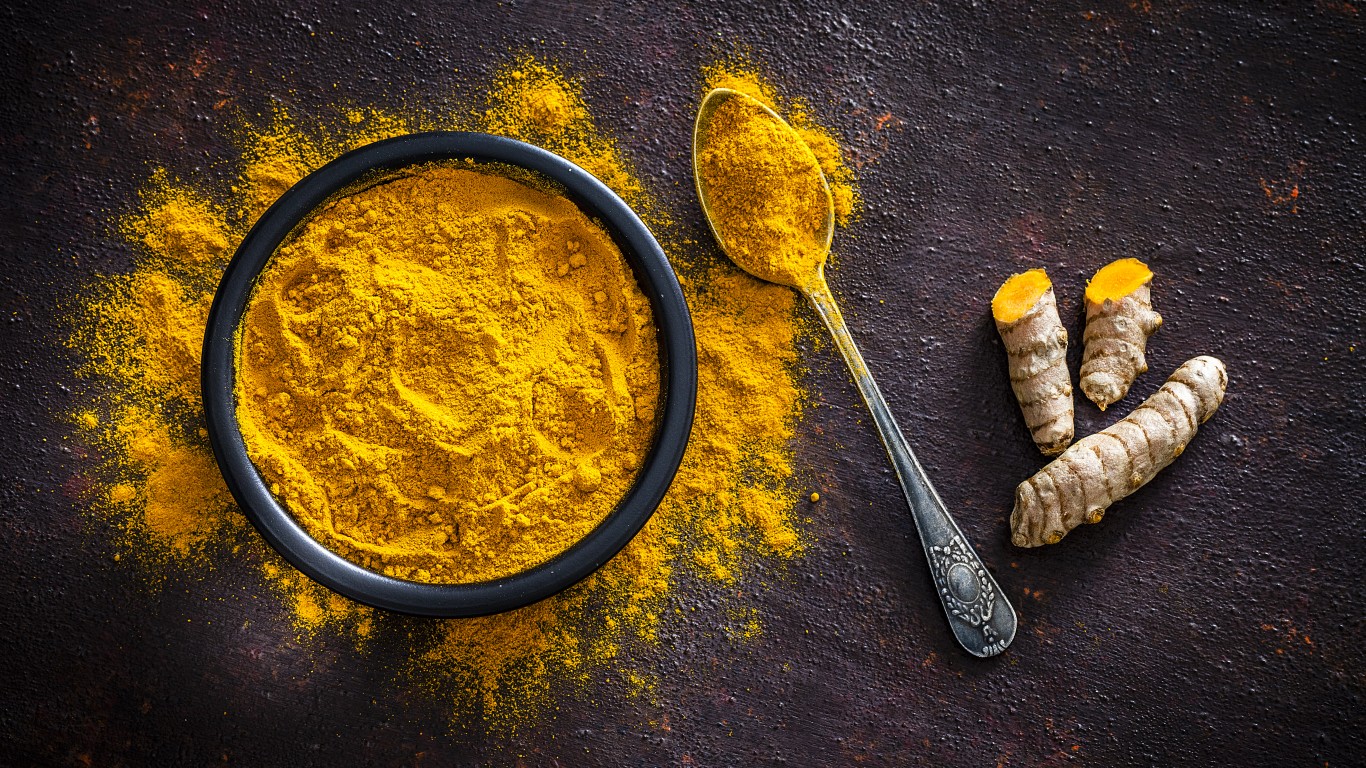
Turmeric
> Important ingredient(s): Curcumin
Because inflammation appears to play a role in cancer, the anti-inflammatory effects of curcumin – a polyphenol found in large quantities in turmeric – may help prevent cancer and also protect healthy cells from damage during chemotherapy.
[in-text-ad]
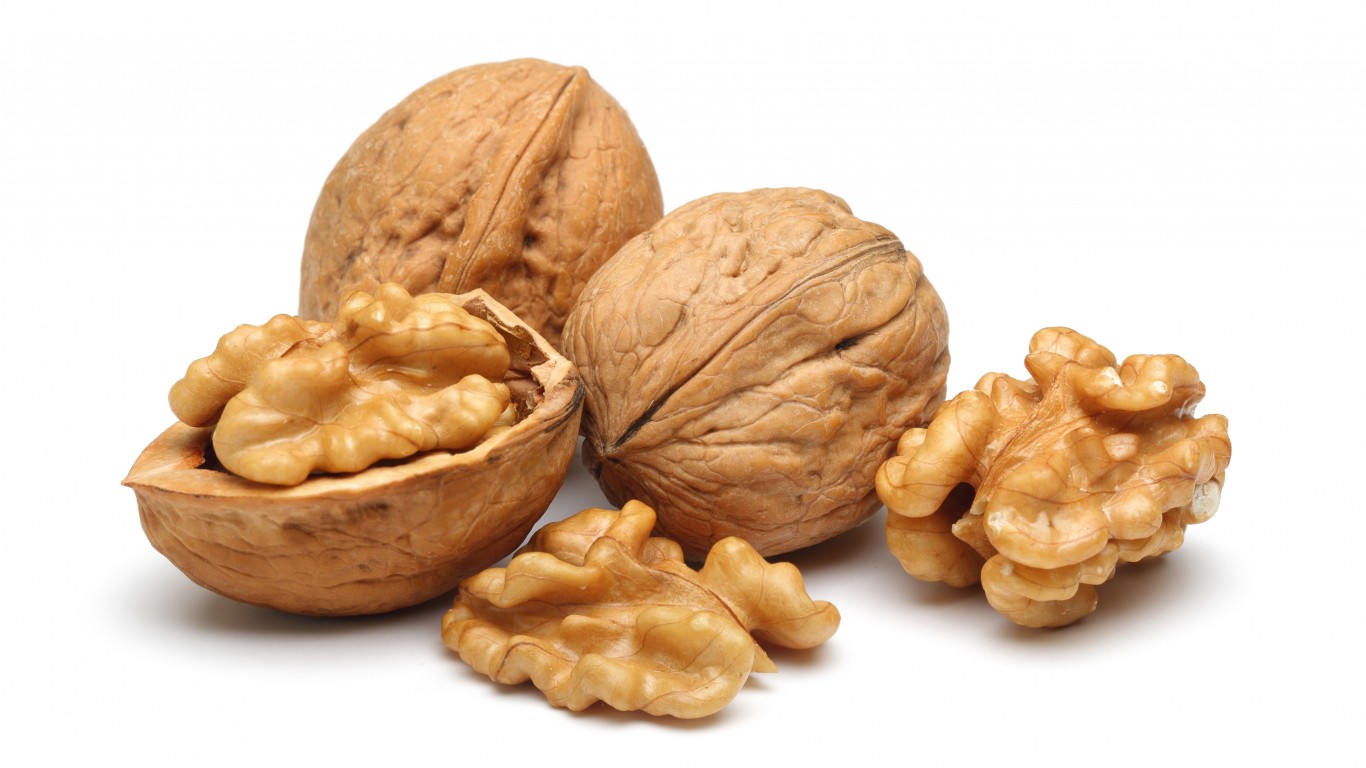
Walnuts
> Important ingredient(s): Ellagitannins, melatonin, and gamma-tocopherol
Animal studies suggest that walnuts can inhibit the growth of prostate, breast, colon, and renal cancers. Emerging research on the nuts suggests that the synthesis of several compounds including ellagitannins, melatonin, and gamma-tocopherol may be responsible for their anticancer action.
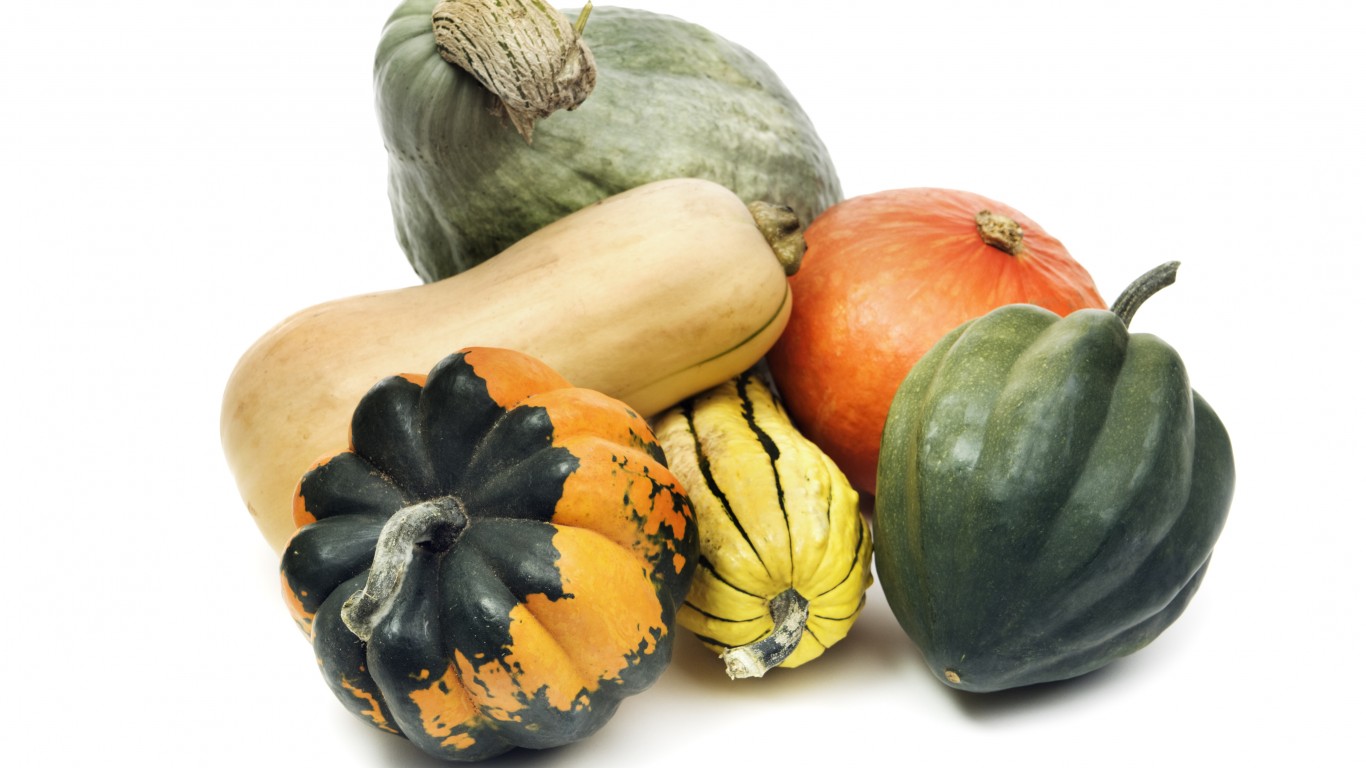
Winter squash
> Important ingredient(s): Carotenoids
Like sweet potatoes, winter squash varieties – including butternut, acorn, and kabocha – are high in carotenoids, including beta-carotene, that have been linked to lower occurrences of lung and breast cancer.
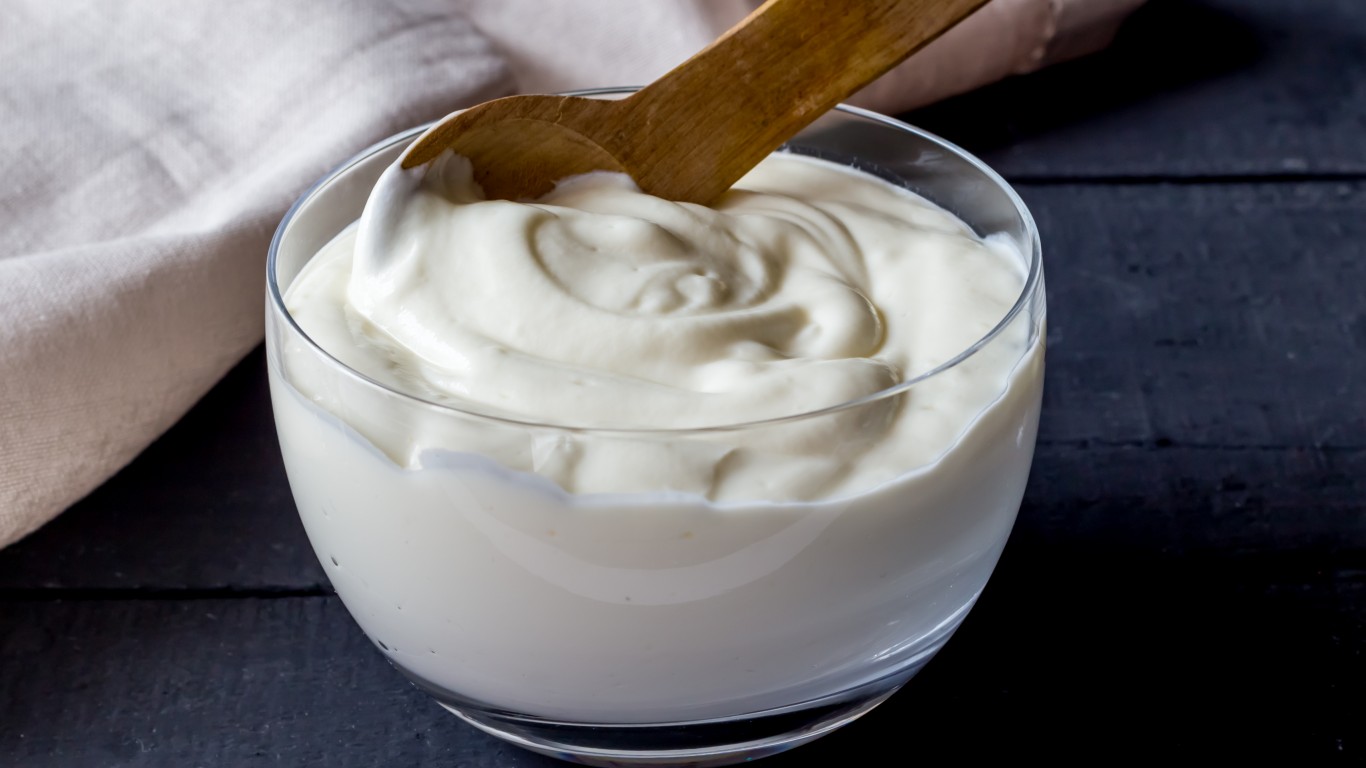
Yogurt
> Important ingredient(s): Probiotics
Inflammation triggered by harmful bacteria may contribute to the risk of certain lung and breast cancers. The probiotics in yogurt can contribute to a healthier microbiome, reducing cancer-causing inflammation.
Credit card companies are pulling out all the stops, with the issuers are offering insane travel rewards and perks.
We’re talking huge sign-up bonuses, points on every purchase, and benefits like lounge access, travel credits, and free hotel nights. For travelers, these rewards can add up to thousands of dollars in flights, upgrades, and luxury experiences every year.
It’s like getting paid to travel — and it’s available to qualified borrowers who know where to look.
We’ve rounded up some of the best travel credit cards on the market. Click here to see the list. Don’t miss these offers — they won’t be this good forever.
Thank you for reading! Have some feedback for us?
Contact the 24/7 Wall St. editorial team.